Category: NYF News
Holiday Wishes from Nepal
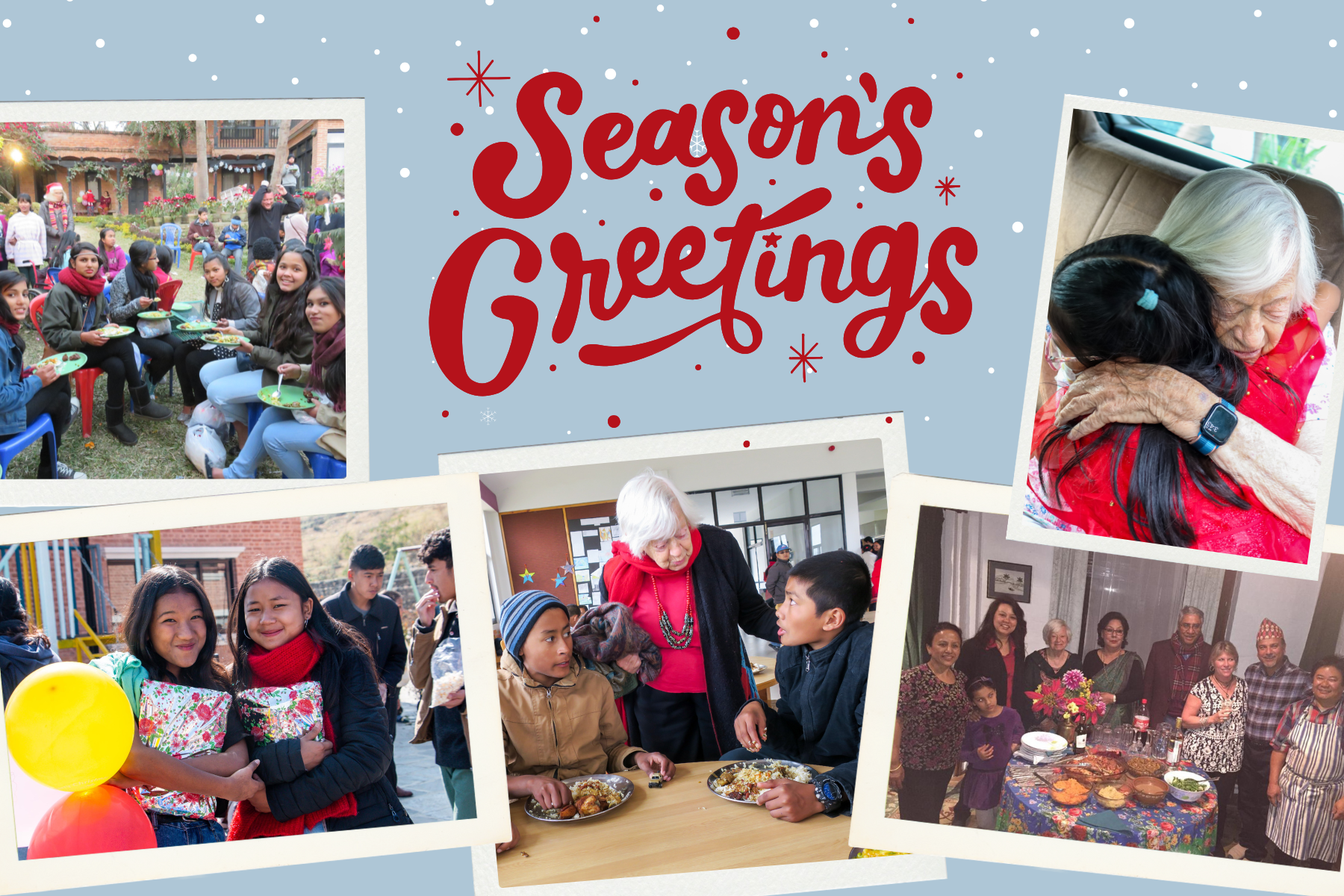
NYF President Som Paneru sends his holiday wishes to you! This letter was featured in an email sent to NYF supporters on December 23, 2024. If you’d like to receive messages like this in the mail, please subscribe to our email list here.
Dear NYF Community,
After your love and generosity during Nepal’s festival season at Dashain and Tihar, it is now our turn to send warm holiday wishes to all of you.
When we ask our graduates about their experiences with NYF, most of them mention holiday celebrations. Of course, they are tremendously grateful for the opportunity to receive a good education, for excellent healthcare, for nutritious meals, and for a safe, stable home. But happy festival memories bound them together as a family.
Our late founder, Olga Murray, always understood intuitively that alongside our wonderful programming, the children in our care needed these joyful traditions. These special times bring us together, creating a shared sense of belonging.
This is our first holiday season since Olga’s passing. It is a bittersweet occasion. The holidays are not the same without her mischief and laughter.
But even this is part of what makes these occasions important. Cherished festival traditions provide opportunities to remember those who came before us, to remember everything they made possible.
This holiday season, I am tremendously grateful for all the years we spent with Olga—and for all the ways she showed her love for Nepal’s children. I am grateful that her work introduced us to all of you, our generous supporters. And I am so moved by the way you have embraced Olga’s promise to the children of Nepal, and made it into Our Shared Promise.
Thank you all for sharing this remarkable year with us, and for your loving commitment to our shared promise. We wish you and yours a warm and joyful holiday season, and love and prosperity in 2025.
Som Paneru, President
Nepal Youth Foundation
Educating Dalit Lawyers Program Fall 2024 Update
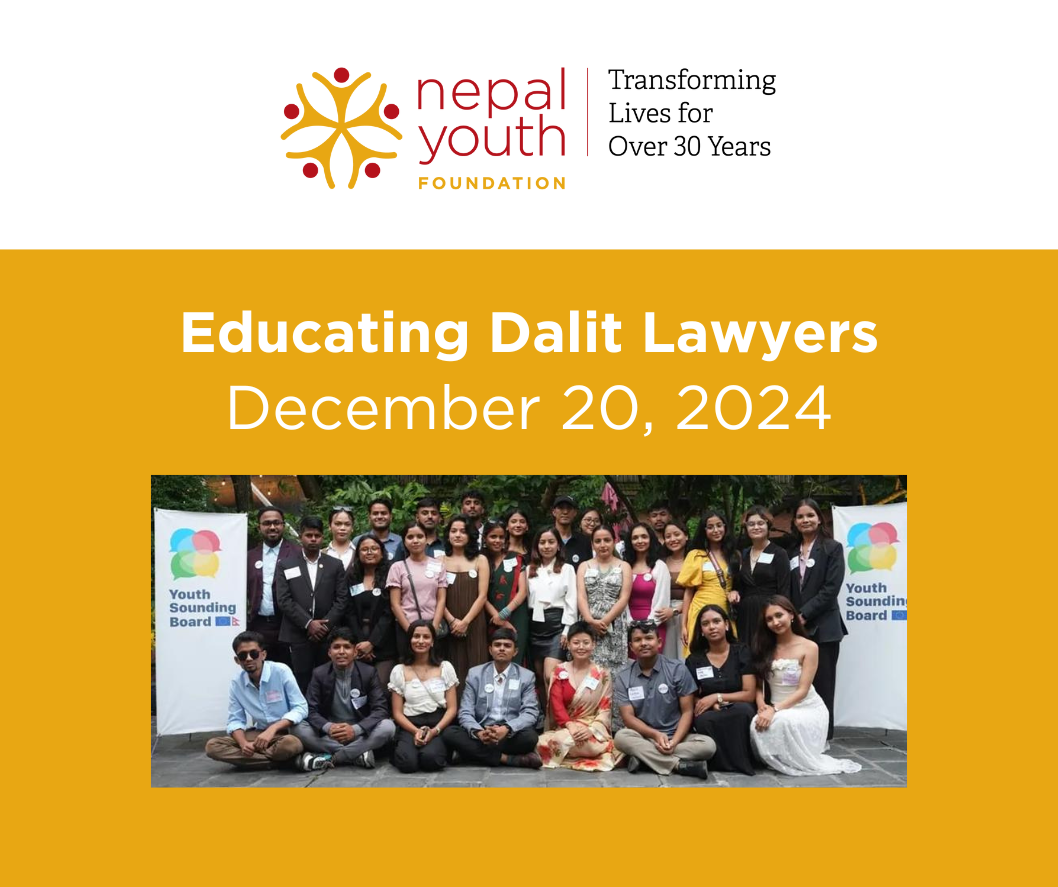
The Nepal Youth Foundation is thrilled to share the latest developments in our Educating Dalit Lawyers (EDL) scholarship program. This transformative initiative is supporting 31 aspiring lawyers from Nepal’s Dalit community as they pursue legal education and work to break barriers of caste-based discrimination.
Since our last update in Spring 2024, the EDL program has continued to grow. Students are excelling both academically and in extracurricular activities. Many are now focusing on specialized areas such as child rights, women’s rights, and policy development. These are fields that urgently need Dalit representation.
Read on to learn more about the incredible strides being made by these determined future leaders!
*Please note that our team has received permission from each of these students to use their real names in updates moving forward.
Program Highlights
This fall, the EDL program reached significant milestones. This included the Mentorship Initiative, where students get paired with mentors working in legal professions. All second-cohort students were paired with their respective mentors, who will offer practical advice, constructive feedback, and emotional support to guide the students in their legal journeys.
Student Achievements:
- Sarita Mijar participated in a Moot Court Training Session, focusing on International Criminal and Commercial Law, where she honed her skills in research, advocacy, and parliamentary procedures.
- Amrita Darji, a 5th-semester student, attended a Law, Politics, and Justice conference, exploring the interplay between legal frameworks and social justice.
- Pradip Nepali engaged in a Mock Parliament Simulation, developing his legal research and argumentation skills through immersive practice.
Leadership and Advocacy:
On July 27th, 2024, Dalit law students in the Kathmandu Valley formally established the Dalit Law Students’ Society, a groundbreaking initiative providing support and resources to Dalit students pursuing legal education. Nine of the 14 founding members are NYF’s very own EDL scholarship recipients, highlighting the profound impact of the program. EDL superstar Shishir Bishwakarma was elected as president, Rudra Bahadur Sarki as secretary, and Tara Bishwakarma as joint secretary!
This society, supported by Dignity Initiative, aims to:
- Coordinate caste-related fieldwork and human rights programs.
- Facilitate leadership training and networking opportunities.
- Build a fraternity-style network to assist final-semester students with internships and career placements.
As a result, by organizing this society, our EDL students are paying forward the generosity they’ve received, creating pathways for future Dalit law students to succeed and advocate against caste-based oppression.
Additionally, EDL students eagerly participated in the global event, “Breaking the Caste Bars: Sustainable Development Goals Framework for Justice and Inclusion of Dalits.” This high-level virtual discussion featured speakers from Nepal’s government and a global network of civil society organizations addressing caste-related issues.
In short, the program explored the United Nations Sustainable Development Goals (SDGs) from a Dalit perspective, highlighting how caste influences a wide range of international challenges. It also provided opportunities for students to build global connections.
Spotlighting Excellence:
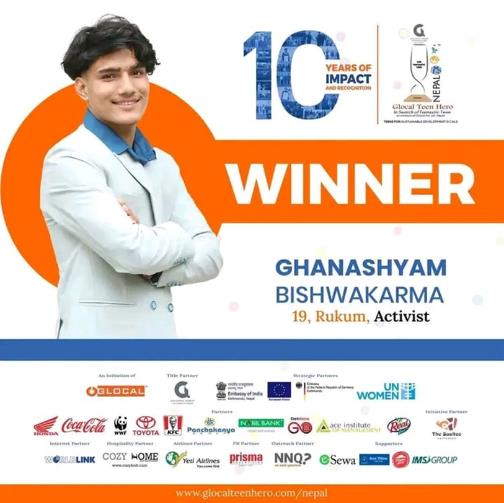
Ghanashyam Bishwakarma, 19, received the prestigious Glocal Teen Hero award for his advocacy efforts. During the COVID-19 pandemic, Ghanashyam used radio broadcasts to share safety information with remote communities. Since his tween years, he has shown remarkable leadership, in issues including child protection, climate justice, and ending child marriage.
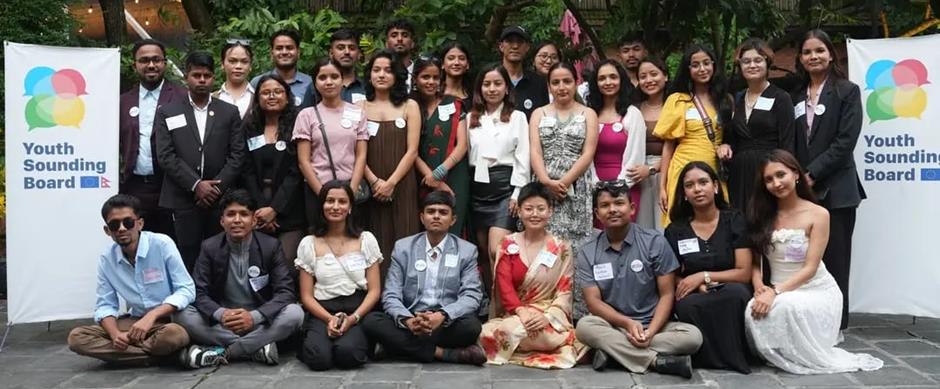
Shishir Bishwakarma, a third-semester EDL scholar and president of the Dalit Law Students’ Society, was elected to Nepal’s Youth Sounding Board, an EU initiative amplifying youth voices in global policy. From August 2024 to September 2025, he’ll work with 30 young leaders to advise the EU office in Nepal on youth-focused programming.
Looking Ahead
Your support is enabling Dalit students to thrive in Nepal’s competitive law programs and to advocate for justice and equality. As they advance in their studies, these students are emerging as advocates for child rights, women’s rights, and policy development. Their work is driving efforts to dismantle caste-based oppression at systemic levels.
Dhanyabad!
Thank you for standing with us and these courageous students as we create pathways to justice and empowerment. We look forward to sharing more updates in Spring 2025!
Urmila Chaudhary & Rising Leaders in Saptari District
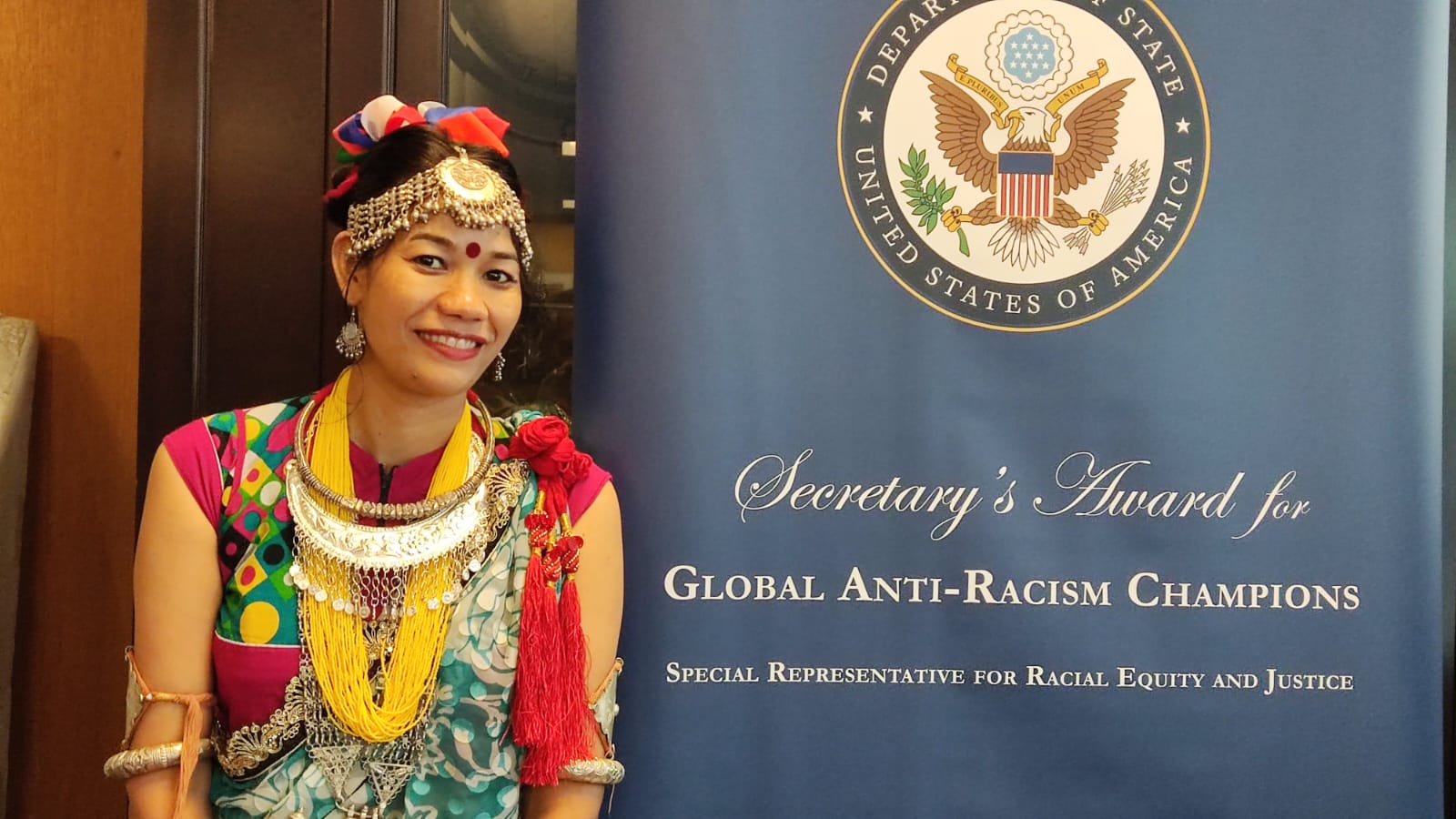
Urmila Chaudhary receives the Global Anti-Racism Champions Award
On October 21, 2024, NYF’s own Urmila Chaudhary was in Washington, D.C., one of six civil society leaders receiving the Global Anti-Racism Champions Award from the U.S. Secretary of State.
This prestigious award honors Urmila’s dedication to advancing the rights of marginalized castes and ethnic communities across Nepal and for combatting systemic racism and intersectional abuses. It brings us such joy to see Urmila’s remarkable accomplishments recognized on the world stage in this way.
NYF President Som Paneru first met Urmila in 2007 when she was 17 years old. She had been trapped in kamlari bonded servitude since age 6. She learned about NYF’s work from a brochure about street dramas being performed by girls like herself who had been liberated. Soon, she began seeking us out in a daring bid for her own freedom.
When Urmila returned to her village in Dang District, she joined an ongoing rally against the bonding practice before stopping to reunite with her family. She immediately became a relentless force and leader within her community, determined to ensure the freedom of the many others who were still enslaved.
- Urmila performed in street plays to raise awareness.
- She stormed outgoing buses at checkpoints to ensure no girls were being sold.
- She visited the families of young girls, convincing them not to send their daughters away.
- A natural leader, Urmila was one of the founders of the Freed Kamlari Development Forum.
- In 2013, Urmila was even hospitalized after being beaten unconscious by police during a peaceful demonstration. Footage of the brutality experienced by Urmila and other demonstrators was broadcast on national TV. It permanently turned Nepal’s people against the kamlari practice. By the end of the year, Nepal’s Supreme Court had formally outlawed the practice.
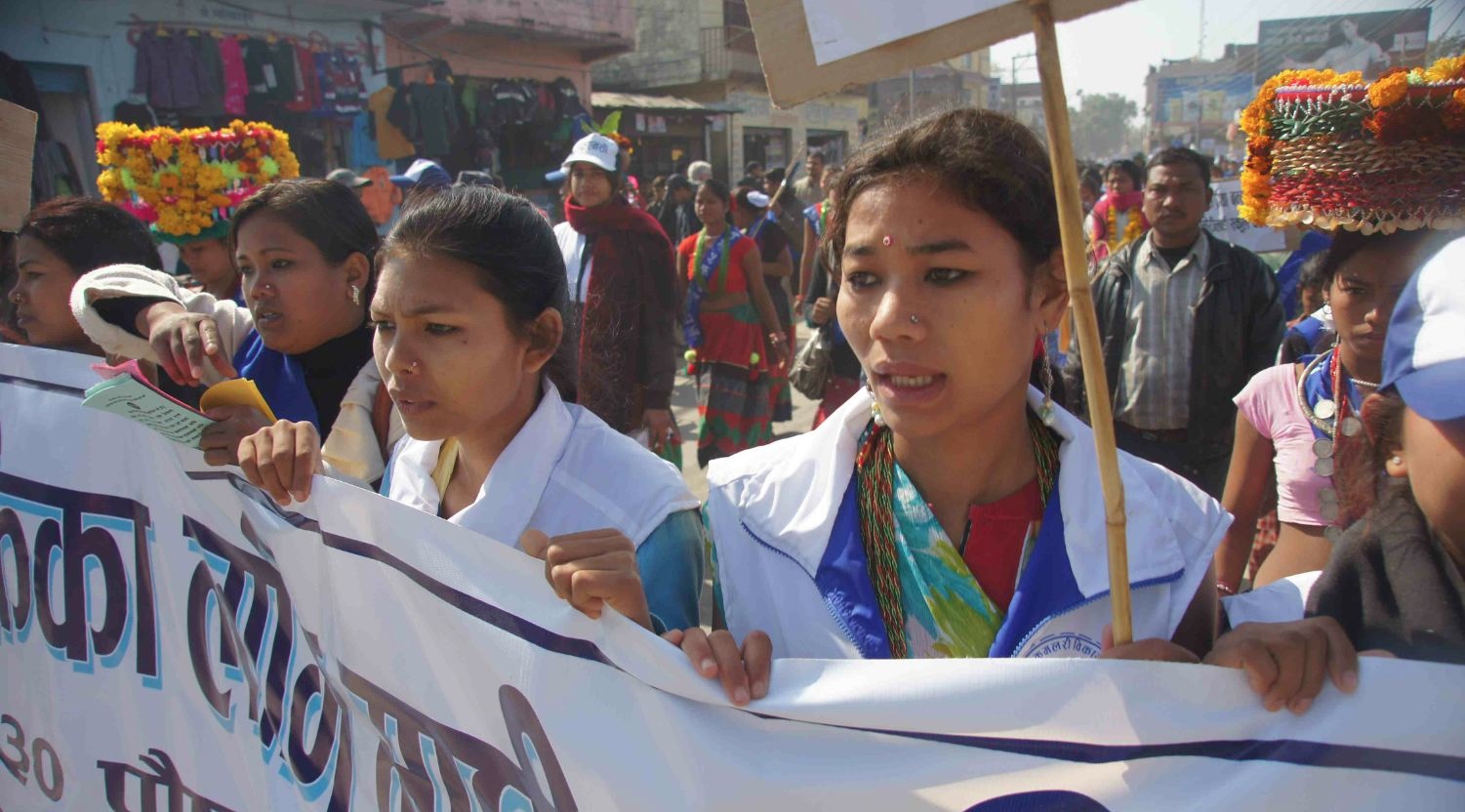
Perhaps most remarkable of all is this: Urmila accomplished all of this while still attending school. Urmila had never set foot in a classroom before being sold into bondage. Following an academic bridging course, Urmila enrolled in Grade 5 alongside 10- and 11-year-olds, taking on school at the same time that she was becoming one of the fiercest, most active leaders in the Kamlari Freedom movement. Today, she is in the final semester of her Bachelors of Legislative Law program at one of Nepal’s best law schools.
Urmila will use that law degree to continue her lifelong fight against injustice.
As we reflect on Urmila’s story, we see the same spark and passion in the young people we are serving in Saptari District. In these earliest days of the Caste Equality Project, several young women have already distinguished themselves as superstars—born leaders capable of achieving tremendous change for their communities. Please scroll down to learn more about two of these leaders, Renu and Anju.
Our Caste Equality Project is helping them unlock their remarkable potential.
For nonprofit organizations like ours, the “Giving Season” between now and the end of the year determines how much we can accomplish in the new year. Thanks to the success of the Empowering Freed Kamlaris program, we already have a proven roadmap for extraordinary, community-led change.
But only your help can keep the wheels in motion. The loving gifts you send right now determine how many young people NYF can support next year.
We’re hoping to raise an additional $250,000 by December 31st to ensure that we can reach as many kids and young adults as we can in 2025. The more you give, the more people we can support.
NYF’s transformative work has always been fueled by loving supporters like you. We hope you’ll consider making a donation today.
At NYF, we know how powerful young people can be, with the right support. With passionate leaders like Urmila, the Tharu girls we liberated in the early 2000s ended the terrible kamlari practice within a single generation. Today, we’re already identifying powerful young Dalit leaders in Saptari District. Will you help empower them in 2025?
Meet the rising leaders in Saptari District:
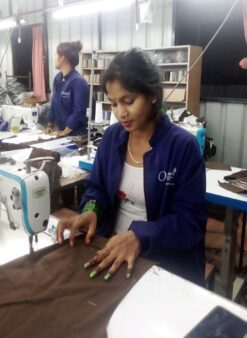
Renu Kumari Sada, 20
Renu Kumari Sada is an upbeat, optimistic young woman who grew up in a family of ten. She is part of the Sada community, a Dalit subcaste that experiences intense discrimination even from other Dalit groups.
Renu’s family relies entirely on income from agricultural labor jobs, so she was only able to attend school through grade three. After that, she needed to help support the family, which she did through household chores and farming.
When she was only 13, Renu’s family married her off to a local young man. But her husband soon moved another woman into their marital home, calling her his “new” wife. Humiliated, Renu returned to her family home, locked into a life with no future prospects, and full of social rejection—all before she ever reached adulthood.
Everyone in the village, even Renu’s family, blamed her for this misfortune. Everything would have been fine, they said, if she had only been able to make her husband happy.
Renu was living with her parents in March 2024, when she heard about a community gathering nearby. NYF was presenting information on the career training programs available through Olgapuri Vocational School. Our team hoped to include these programs in the first year of Caste Equality Project work in Saptari District.
Most young people in Saptari District’s Dalit-majority villages were too anxious to sign up for vocational training this year. These communities have endured so many broken promises, casteist obstacles, and exploitation that many parents discouraged their adult children, believing that after our training programs, any job opportunities would disappear. Their families, they thought, would end the year in worse financial condition than they began.
But where others expected a dead end, Renu saw an escape hatch.
Renu enrolled in NYF’s Industrial Tailoring training program with tremendous enthusiasm, leaving her village for the first time ever and moving to Kathmandu. Despite her limited educational background, she committed herself to mastering the math and literacy skills needed to enter this new career path. Today, Renu is thriving at work in Kathmandu’s garment industry—and her success has been noticed back home.
Inspired young adults in Saptari District are looking at vocational training opportunities with greater interest. After only a few months, Renu is putting money aside in savings and also sending some home to her family.
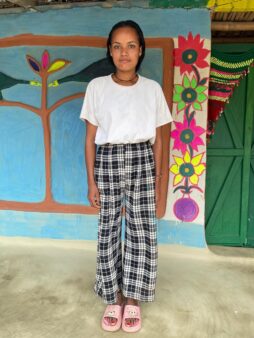
Anju Sada, 20
Anju Sada, 20, has already left a positive mark on her village through her artwork. Like Renu, Anju belongs to the Sada community. Most of the buildings in their village are simple, traditional structures made of mud, bamboo, thatch, and wood. The method of insulating with mud allows for intricate decorative patterns sculpted on the walls.
During the COVID lockdowns, Anju began experimenting with paints, enhancing the designs on nearby homes with beautiful colors. She refreshes the colors every Tihar, when Nepalis traditionally deep clean their homes for the coming year.
For this young woman from the most oppressed subcaste of all, this cheerful artwork was a kind of defiance. Despite generations of harmful messaging about her place in the world, Anju knew that she and her neighbors deserved to be surrounded by joy and beauty. And she was determined to create as much of that beauty as she could.
Anju was a local trendsetter before NYF ever arrived—she was our first local teammate when we arrived in Saptari District!
In mid-2024, Anju became the first woman from her village’s Sada community to ever complete the 12th grade. She was able to accomplish this because her parents sent her to live with her uncle in another region for much of her childhood. Growing up in another community allowed her to master both Maithili (her native language) and Nepali—but it also separated her from her cultural heritage.
When Anju first met NYF, she was accepting what she thought was a one-time translation job—a great opportunity to bring home extra income. But her eyes lit up as our team described the Caste Equality Project.
She’s been a passionate local Caste Equality Project leader ever since.
Today, Anju is an inspiration to other local girls as she encourages them to stay in school. She’s NYF’s go-to local translator, providing vital community mobilization support. And she’s also been working as a paid volunteer, helping girls who recently dropped out of school to rejoin their peers in the classroom.
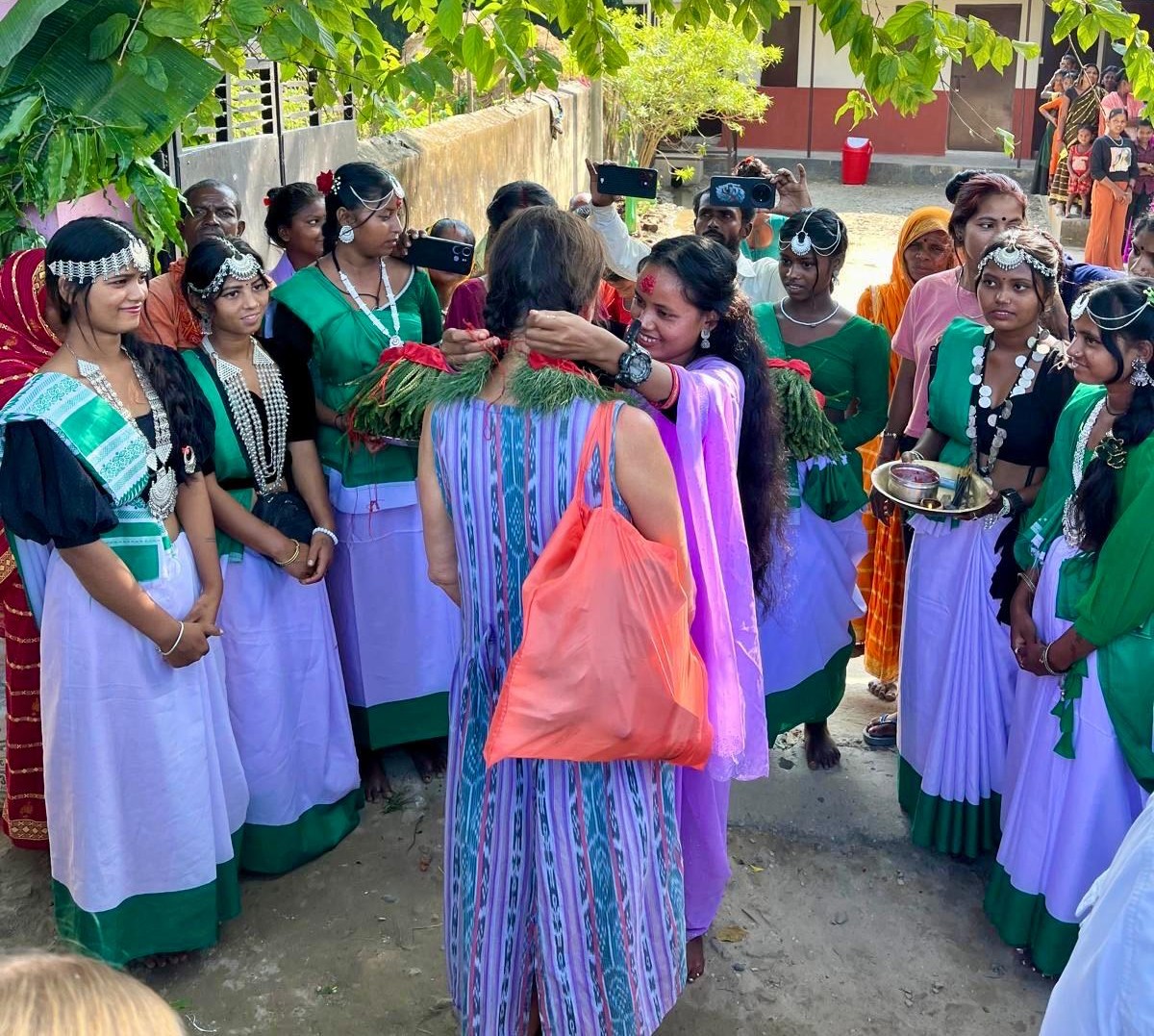
A Thanksgiving Reflection from Olga’s Grandson
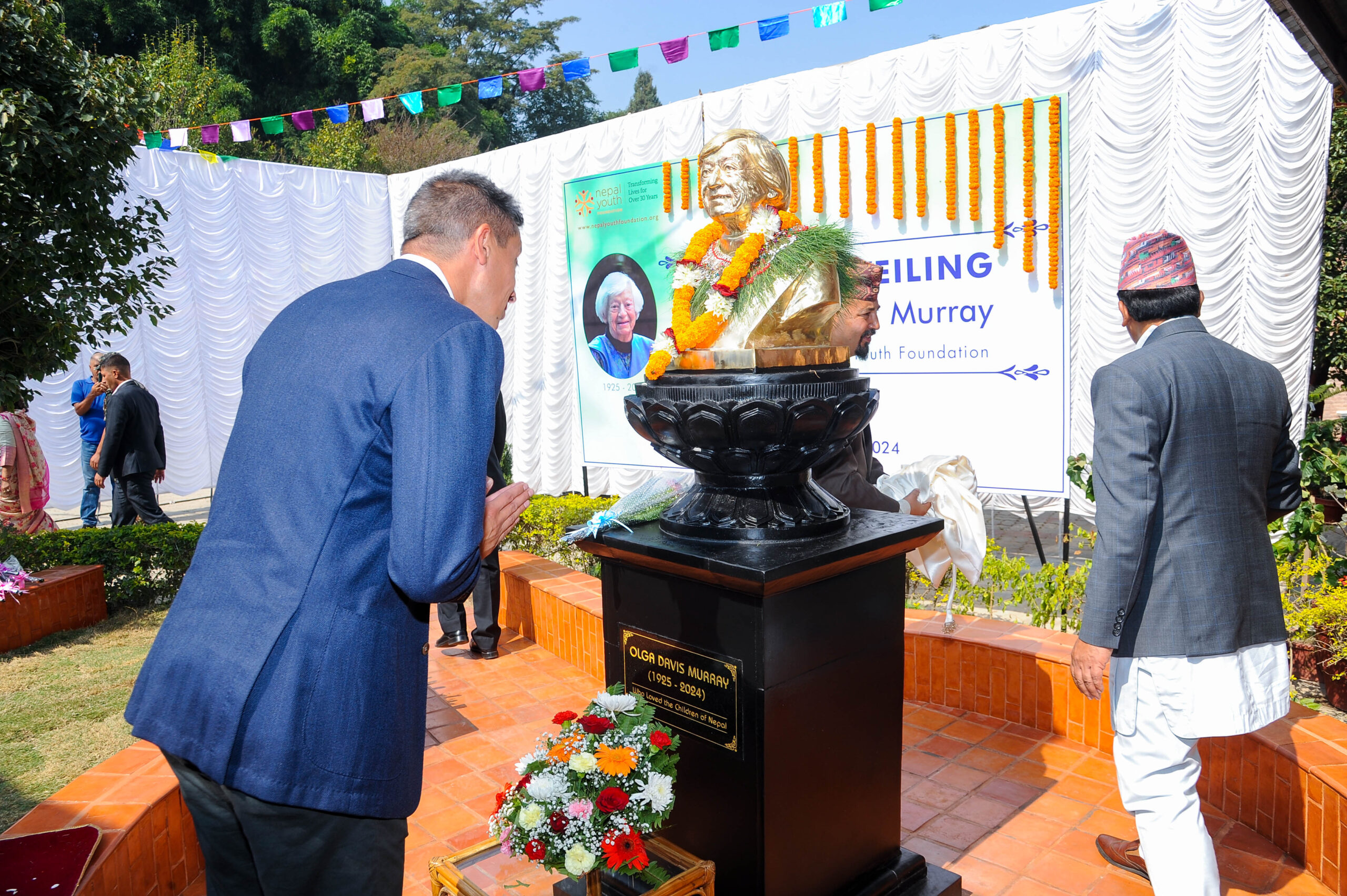
As we approach Thanksgiving, we are reminded of the importance of gratitude and community. This year, Sean Murray, Olga Murray’s grandson and the newest member of NYF’s Board of Directors, has penned a heartfelt letter reflecting on his grandmother’s incredible legacy and the inspiring work NYF continues to accomplish in Nepal.
A Thanksgiving Reflection: Honoring Olga’s Legacy
By Sean Murray
Dear NYF Community,
This Thanksgiving, as I reflect on the year gone by, I remain heartbroken by the loss of my grandmother and NYF’s founder, Olga Murray. For many of us, she was a guiding star—the person who inspired us to be better versions of ourselves. Losing someone like that leaves a hole in the world.
And yet when I look around at Olga’s legacy and at the work NYF has done since she passed, I see so many reasons to be grateful.
This October, I and other members of the NYF family traveled to Nepal to attend a celebration of Olga’s life at Olgapuri Village. The event was joyous and touching, with hundreds of guests and dignitaries toasting Olga’s legacy. But I was most impressed by all the ways that Olgapuri has grown and improved since I was last there, with additions like a furniture-making shop in the vocational school featuring state-of-the-art machines generously donated from Germany, a counselling and therapy center for children who experienced trauma before coming to Olgapuri, and a dedicated theater room where the children can put on performances and watch movies.
Olga always hated being the guest of honor at an event, but she would have been overjoyed to see how much thought and care has gone into realizing her dream of a first-class children’s home and education center.

I was also grateful for the opportunity to travel to Saptari District and see the Caste Equality Project, which embodies Olga’s vision of a long-term, on-the-ground, transformative education program. In these majority-Dalit villages, I saw the same thing Olga saw when she first came to Nepal in the 1980s: acutely challenging circumstances and poverty combined with a deep desire for access to the educational tools that can improve children’s lives.
And in the NYF staff who are running the project, I saw the same qualities that made the Indentured Daughters program a success and that will sustain this new project for years to come: dedication, vision, and quiet competence. I am thankful that NYF remains in such strong and steady hands.

Leaving Nepal, I expected to feel a fresh sense of loss. Instead, I now feel that special spark that always touches me when I engage with my grandmother’s work—the burst of inspiration and energy that strikes when you see people improving the world in front of you, and when you know that you can help. For me, and for NYF at large, the sorrow of this past year is giving way to a renewed sense of purpose. And that is one more reason to be thankful.
NYF has graciously invited me to join its Board of Directors, and I look forward to continuing this vital work with all of you. There will be many opportunities for us to channel the inspiration that Olga gave us. If you want to take action during this holiday season, please consider beginning with our GivingTuesday campaign, which aims to provide nutritious school lunches for Dalit students in Saptari District. It is just the sort of practical, direct, and holistic program that my grandmother envisioned and that NYF will continue to pursue.
With gratitude,
Sean Murray
Meals That Matter: Continuing Olga’s Vision
As Sean shared, our Meals That Matter campaign embodies the practical, direct, and holistic impact that Olga envisioned. This GivingTuesday, we are rallying together to provide nutritious school lunches for Dalit students in Saptari District—nourishing both their bodies and their potential.
From now until GivingTuesday on December 3rd, you can make a tangible difference. For just $0.27, you can provide a nutritious meal for a student in Nepal. A donation of $27 funds 100 healthy school lunches, ensuring that children have the nourishment they need to focus on their education and dream big.
Join us in honoring Olga’s legacy and continuing her vision of empowering children in Nepal. Together, we can fuel hope, one meal at a time.
Staff Spotlight: Chhori Laxmi Maharjan
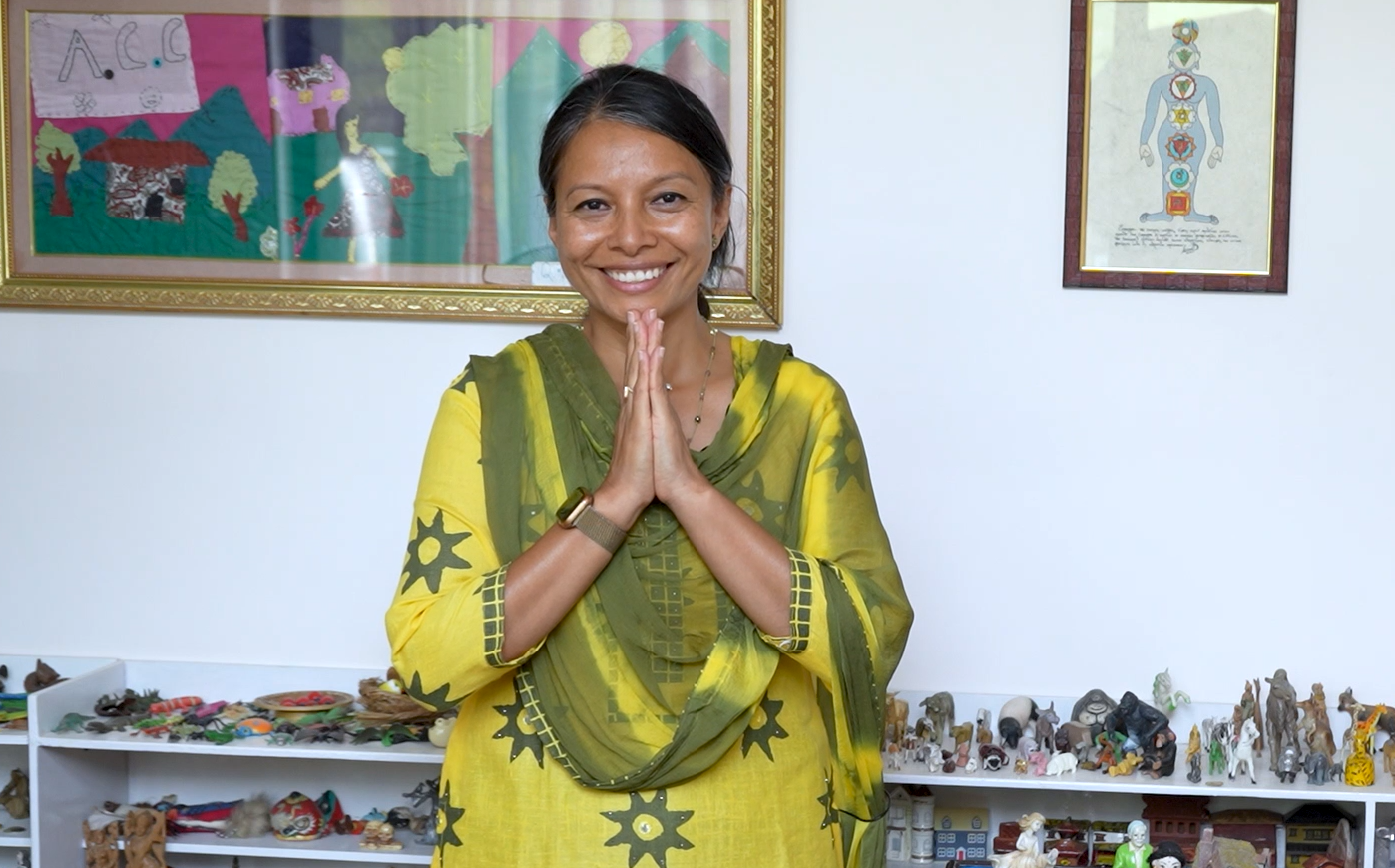
Chhori Laxmi Maharjan, Head of Ankur Counseling & Training Center
Dr. Chhori Laxmi Maharjan is the Head of NYF’s Ankur Counseling & Training Center. She cherishes daily opportunities to witness emotional healing in the children receiving therapy from her and her team.
“I get to know my client’s needs,” she says. “This is a chance to prepare them for any risks and achievements, as well as to help them address their most prominent issues, such as anxieties, worries, and hopelessness. I can be the safe container for them with a loving, compassionate heart.”
“Nisha”
One young patient, “Nisha*,” came to Chhori’s office when her guardians noticed she was struggling in school and finding it difficult to get along in social settings. Nisha described intense feelings of inner conflict, trust issues, loneliness, and poor self-esteem. As Chhori listened, however, it became clear that Nisha’s personality was joyful, hopeful, and creative. But traumatic experiences in her early life had made Nisha very guarded and distrustful of these traits.
“She mentioned her dream to become a successful person in the future,” Chhori remembers. This dream became a guiding light in Nisha’s healing journey.
Meeting once a week, Chhori and Nisha began coaxing her natural positivity out of hiding. They used a child-centered technique called sandplay therapy.
In the beginning, Nisha’s work revealed themes of deep hopelessness, with only small sparks of joy and playfulness emerging. But as she grew more comfortable, and in coordination with her guardians and teachers, she became kinder and more compassionate towards herself. Her perspective on herself began to shift, and she realized that she possessed the power to change. Gradually, Nisha became more hopeful about the future. She choose to invest more effort in her schoolwork and to open her heart to friends, family, and classmates.
Today, Nisha is still working with Chhori in therapy. But she is doing so with a solid foundation of her own self-worth and making tremendous progress. Chhori feels deeply grateful for the opportunity to help each of her patients explore and overcome the challenges standing between themselves and a joyful future.
*Confidentiality is critical in a therapeutic setting. “Nisha’s” story is a blend of several of Chhori’s past patients, with details changed to protect privacy.
Chhori’s Background
Dr. Chhori Laxmi Maharjan grew up in Kathmandu, in a traditional Newari family. Her father was a carpenter. Her mother managed the household, raising five children.
“My mother truly believes that education is the key to wisdom and freedom,” Chhori says. Her mother made every effort to ensure that all five children had access to this precious opportunity. Chhori took her education very seriously as a result. “I remember wanting to make my mother’s dream come true while I was young.”
One day, as Chhori was about to graduate high school, she came across an Introduction to Psychology book on her uncle’s bookshelf. The material was fascinating to Chhori, who was a thoughtful, emotionally attuned, service-oriented person by nature. “I decided to earn a higher degree to become the one who listens with an empathetic heart,” she says.
Meeting NYF
After receiving her bachelor’s degree in clinical psychology, Dr. Chhori Laxmi Maharjan began working for an organization serving adults and children living with HIV/AIDS. Mental health services are extremely important for individuals living with chronic health conditions, especially those which are life-threatening and highly stigmatized.
She quickly realized that the children and youth in her care were the most vulnerable to developing severe psychosocial issues. “Children need to have the opportunity to process traumatic experiences in a manner consistent with their cognitive and emotional development,” Chhori wrote in her PhD dissertation in 2019. But unfortunately, “clinical psychology and therapeutic interventions are in their infancy in Nepal.”
“Deep in my heart, I felt that I needed to work for children.” In mid-2006, Chhori intersected with NYF leadership, including Som Paneru and Olga Murray. Our organization was searching for a counselor specifically for children and youth, ideally one who specialized in sandplay therapy. “Without a second thought, I applied and joined NYF in October 2006.”
Ankur Counseling Center
Chhori helped to open Ankur Counseling Center right away, in 2006. “Ankur” is Sanskrit for “flower bud,” “sapling,” or “sprout.” Ankur became Nepal’s very first counseling center for children.
The first children to receive care here were the kids living J House and K House, the precursors to Olgapuri Children’s Village, as well as young survivors of the exploitative childhood bondage practice called kamlari. But Ankur’s mission quickly expanded to include beneficiaries of many other NYF programs, with remarkable results.
In 2014, with support from mentors, partners, and friends met through NYF, Chhori took a several-year hiatus from Ankur Counseling Center to travel to San Francisco to pursue her PhD in Psychology from the California Institute of Integral Studies. She earned her doctorate in 2019. Her dissertation focused on sandplay therapy as a child-focused technique in Nepal’s childcare homes, including case studies from NYF’s work. She paid special attention to the success of sandplay therapy (which was developed originally in the West) on the outcomes for children within an Eastern cultural context.
Fresh PhD in hand, Chhori returned to Ankur Counseling Center. She was more determined than ever to continue offering mental health resources to Nepal’s children.
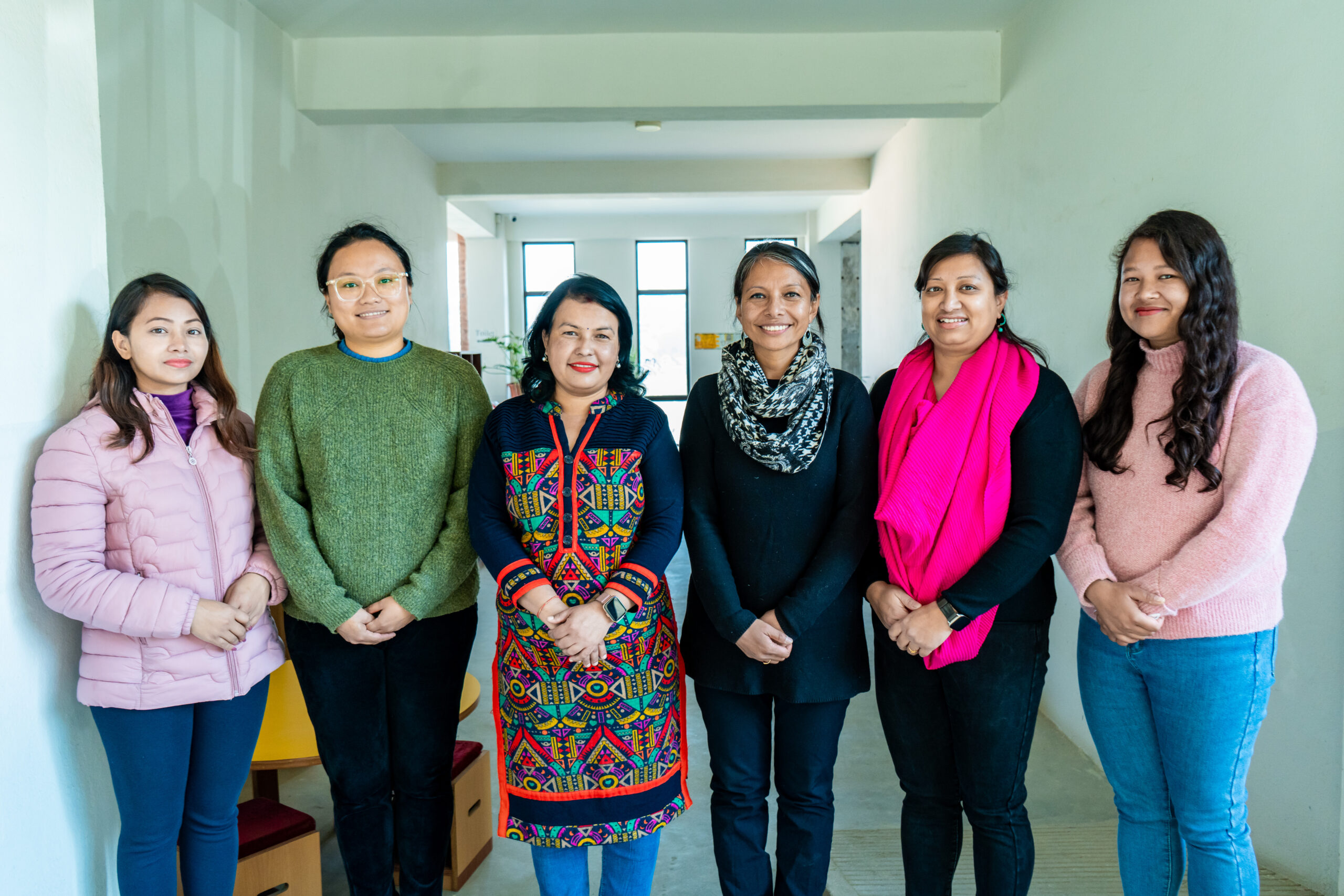
Childhood Trauma
Childhood trauma is severely disruptive to healthy development. Impacts can last a lifetime, long after a child has been removed to safety. Some common symptoms of those with unprocessed childhood trauma include poor self-care, self-harm, interpersonal struggles and difficulty with authority, trouble expressing emotions (both extreme reactivity and numbing), and more.
Trauma impacts the part of the brain called the “orbitofrontal cortex,” Dr. Chhori Laxmi Maharjan explains in her dissertation. The orbitofrontal cortex oversees complex decision-making, managing the balance between our emotions and analytical thinking. Disruption to its normal development results in learning and behavior problems, and even developmental delays and physical illnesses.
These disruptions include traumas like extreme poverty; homelessness; neglect and/or abuse; a parent’s mental illness or chronic or terminal illness; abandonment or death of parents; natural disasters (like the 2015 earthquake) or wars (like the Nepali Civil War from 1996-2006); displacement; bullying or stigma—and many more.
To “rescue” a child from childhood trauma, the first step is to do everything possible to interrupt that traumatic situation, providing a safe, stable environment with safe, stable adult caregivers. Helping these children to cultivate as many healthy relationships as possible is a crucial protective measure for emotional and mental well-being.
But this is only the beginning, as it does not undo the harm already sustained by the growing brain.
In order to set healthy brain development back on course, it is crucial to also provide these children with the care, support, tools, and space necessary to grapple with these complex, frightening experiences.
The tremendous success of all of NYF’s programming is due to our team’s keen understanding of the importance of mental health care for childhood trauma survivors. Chhori is a leader in ensuring all of NYF’s physical interventions are strengthened, supported, and sustained by robust mental and emotional care as well.
Sandplay Therapy
Ankur Counseling Center uses many different therapeutic approaches, but sandplay therapy is Chhori’s specialty.
For both adults and children, a common symptom of traumatic stress is an intense struggle to articulate the experience in a way that is organized and linear while also sufficiently capturing the complex layers of distress behind the narrative. This is because part of what makes an experience traumatic is its scale, scope, and impact on so many pieces of an individual’s life. The brain’s inability to untangle and sort this tremendous snarl is itself a major facet of the trauma. This is especially true for children, whose brains are still developing their baseline understanding of the world.
Sandplay therapy bypasses the factual story of the trauma entirely. It instead capitalizes on a child’s natural ways of learning: imagination, creativity, and pretend play. In much the same way healthy children will explore their worlds in miniature by playing house, acting out stories with their toys, or making up elaborate playground games (taking advantage of the options to swap roles, add dramatic surprises, adjust the rules, go back to change the ending, and more), a child grappling with trauma can use play to safely navigate the major sources of distress within their traumatic histories.
How Sandplay Therapy Works
In Chhori’s counseling room, a child is presented with trays of sand and many shelves of miniatures representing all parts of life and fantasy: figures of men, women, children, and babies; superheroes and villains; houses, castles, schools; gods and goddesses; trees, dump trucks, rubber duckies, dinosaurs, frying pans, puppies, and more. The child is invited to gather as many items as he or she wishes, and to create a world within the sand tray.
Chhori watches patiently as the child creates the world, careful not to interrupt the process. Some worlds—often in the beginning of a child’s journey—are highly disorganized, overwhelmed with figures in chaotic relation to one another. Other worlds are quite sparce, with figures appearing far away from one another. Still other worlds reveal consistent themes, like villains lurking in the shadows, families being reunited, or community roles.
When the tray is complete, Chhori asks the child if their creation has a title, or if they’d like to walk her through the world they’ve created. Certain figures clearly have more significance to the child than others—perhaps a specific problem the figure has encountered. Letting the child lead as much as possible, Chhori lets the tray become the subject, with the child explaining about the characters, their relationships to one another, their desires, and their struggles. Discussions emerge naturally from this process, allowing the child to gently explore challenging themes from a safe distance, and as the expert in control of their own created world.
The results are transformative, as children gradually peel through the layers in this safe, affirming environment, gently processing their trauma piece by piece.
And, wonderfully, sandplay therapy is a useful technique for children from virtually any cultural background. It’s especially crucial in a country like Nepal, where children come from many different subcultures.
A Day in the Life
Dr. Chhori Laxmi Maharjan has a very full daily schedule, touching on every NYF program in one way or another.
“Usually, my day starts with providing one-on-one counseling sessions,” she says. Chhori has an average of four individual sessions per day, each lasting 30-50 minutes. Most of her patients are children and youth, including Olgapuri Children’s Village kids, NYF Scholarship recipients, and children referred from other children’s homes or nonprofits working with families in Kathmandu Valley.
Twice a month, she also leads 90-minute group therapy sessions.
After each counseling session, Chhori makes careful session notes to document each patient’s progress. Occasionally, if necessary, she meets with parents or guardians.
Chhori also provides clinical supervision sessions with the rest of the Ankur team (currently six counselors, each with a master’s degree) and mental health professionals from other organizations.
Afternoons are for larger projects. Some days, Chhori leads trainings and workshops for mental health professionals, teachers, parents and guardians, social workers, and other people who work with children and youth.
Innovative Trainings & Workshops
Some of these trainings are for NYF’s teams, while others are specifically for organizations with missions that complement ours. For example, Chhori recently led a several-day workshop for staff members at a Kathmandu Valley women’s shelter which had been struggling with behavior problems from some of the children receiving services there. The training focused on trauma-informed discipline: methods of effectively addressing problematic behaviors in ways that recognize and honor the chaotic, frightening, and painful circumstances these children were responding to. Professionals who received this training responded with glowing appreciation. They have already seen remarkable improvement in their interactions with the children in their care.
Other trainings are part of larger NYF programs. Women in our Olgapuri Vocational School Industrial Tailoring program receive empowerment and goal-setting workshops as part of their curriculum. These students frequently report that these workshops were their favorite part of the training!
And, of course, Peer Counseling training is a major facet of the Caste Equality Project (CEP). Chhori is leading this program, working closely with CEP Coordinator Lalit Gahatraj to ensure our 30 Saptari District peer counselors are supported and empowered in their mission to begin building their community members’ self-confidence, overcoming generational trauma, and daring to seize opportunities to participate fully in Nepali society.
Community Mental Health Program
Mental health problems are very common across Nepal. But unfortunately, awareness of mental health concepts are still very low, even in urban areas. During the height of the COVID-19 pandemic, rates of mental health crisis spiked. At the same time, Ankur Counseling Center’s reach extended further than ever before.
During NYF’s rapid pivot to lockdown-safe programming, Chhori’s team was the first to introduce remote services. And soon, Ankur Counseling Center had expanded their offerings to include services to local women experiencing domestic violence, support for front-line healthcare workers, and training for other organizations serving women and children.
The COVID lockdowns showed local governments and other changemakers how important mental health care is. In mid-2023, the government of Lalitpur Metropolitan City (the area of Kathmandu Valley where NYF’s offices are) invited Ankur Counseling Center to launch a Community Mental Health Program. Chhori has been leading this important work ever since. So far, she has introduced monthly “Mental Health Desk” activities in local schools, organized World Mental Health Day celebrations, and provided mental health awareness training for students, teachers, healthcare workers, social workers, and traditional healers.
What’s Next?
Dr. Chhori Laxmi Maharjan is involved with many Kathmandu-based organizations focused on mental health. She’s passionate about applying the world’s best understanding of psychology to a Nepali cultural context.
Most psychological care techniques today were developed in Western cultures, which in many ways are very different from Nepal’s society! As a result, some care techniques which are very effective for an American mindset or worldview are not culturally appropriate for Nepali patients. However, Chhori understands the scientific basis for these techniques. She and her network of Nepali psychology experts are deeply interested in studying which of these approaches may have promise in a Nepali context, with a few culturally minded tweaks.
Meanwhile, she says, “Personally, I feel NYF is my second home. My values match with NYF’s values.” Our organization gives her a sense of belonging and of a meaningful life. And because NYF is structured with trust in our on-the-ground experts, Chhori has plenty of opportunities to stretch her expertise as far as she is able.
“Working more than 15 years with children and youth, I have learned that suffering can be reduced or prevented by cultivating compassion,” Chhori says. “I can see the hardships in the community—and opportunities for community transformation.”
NYF is deeply proud of Dr. Chhori Laxmi Maharjan and the work she is doing to advance mental health care in Nepal—especially for children and survivors of trauma.
You are not alone. If you or someone you know is experiencing a mental health crisis or thoughts of suicide, get help right away. You can contact your physician, go to your local ER, or call the suicide prevention hotline in your country. For the United States, you may call or text the Suicide Prevention and Crisis Hotline at 988. You can also message the Crisis Text Line by texting “HOME” to 741741 or visiting https://www.crisistextline.org/. Both programs provide free, confidential support 24/7.
A beautiful tribute to Olga Murray
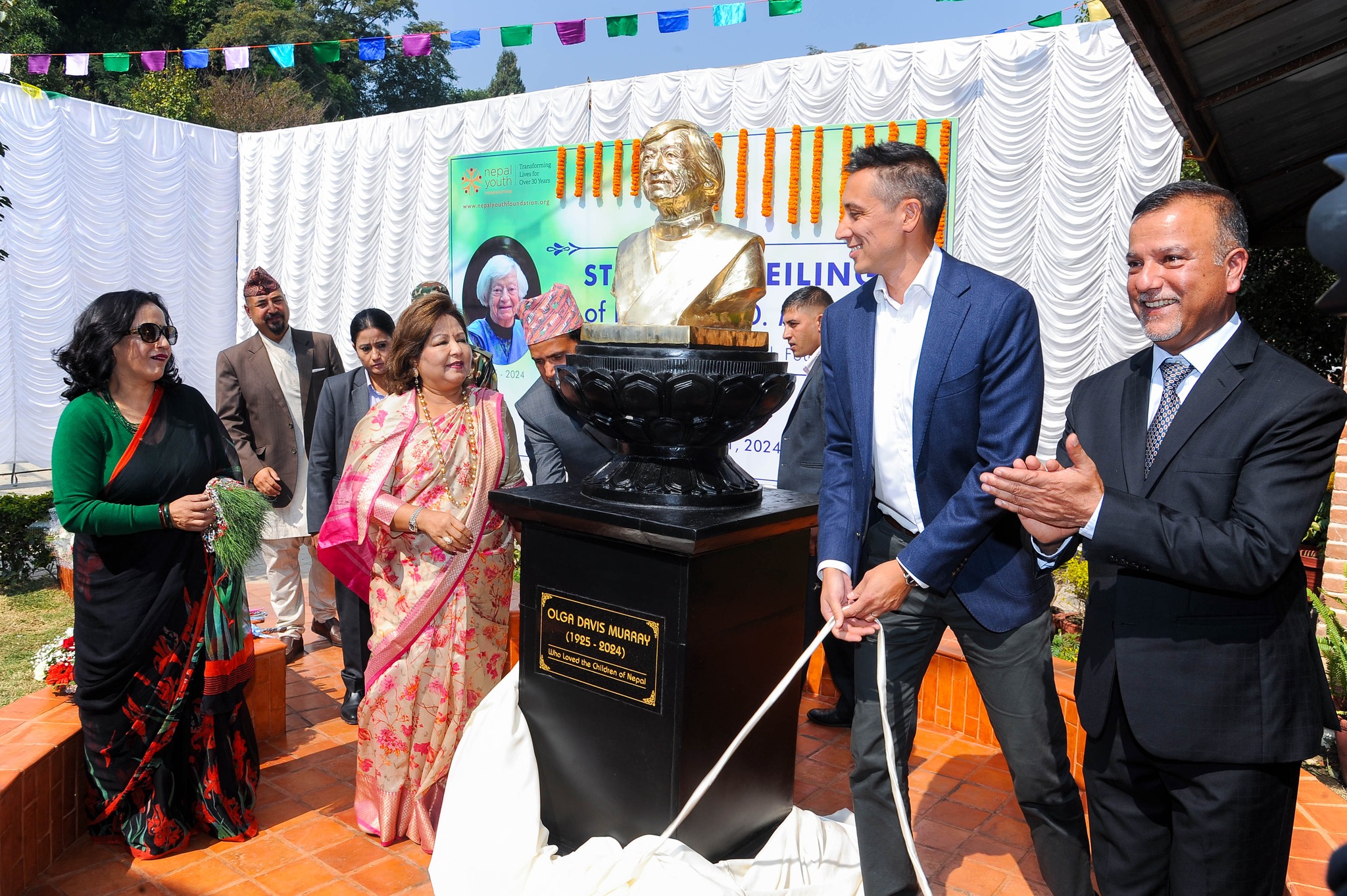
On October 21, 2024, over 450 people gathered at Olgapuri Children’s Village for a special, bittersweet celebration of our founder Olga Murray.
We were so please to see so many NYF Community members present at this ceremony. Attendees included community leaders, stakeholders, and dear friends of Olga’s. Staff members, board members, Olgapuri children, and many adults who were raised in NYF’s care were also in attendance. Even current students at Olgapuri Vocational School joined us! We were also deeply honored to be joined by Nepal’s Minister of Foreign Affairs, the Honorable Dr. Arzu Rana Deuba. Dr. Deuba was a close and dear friend of Olga’s.
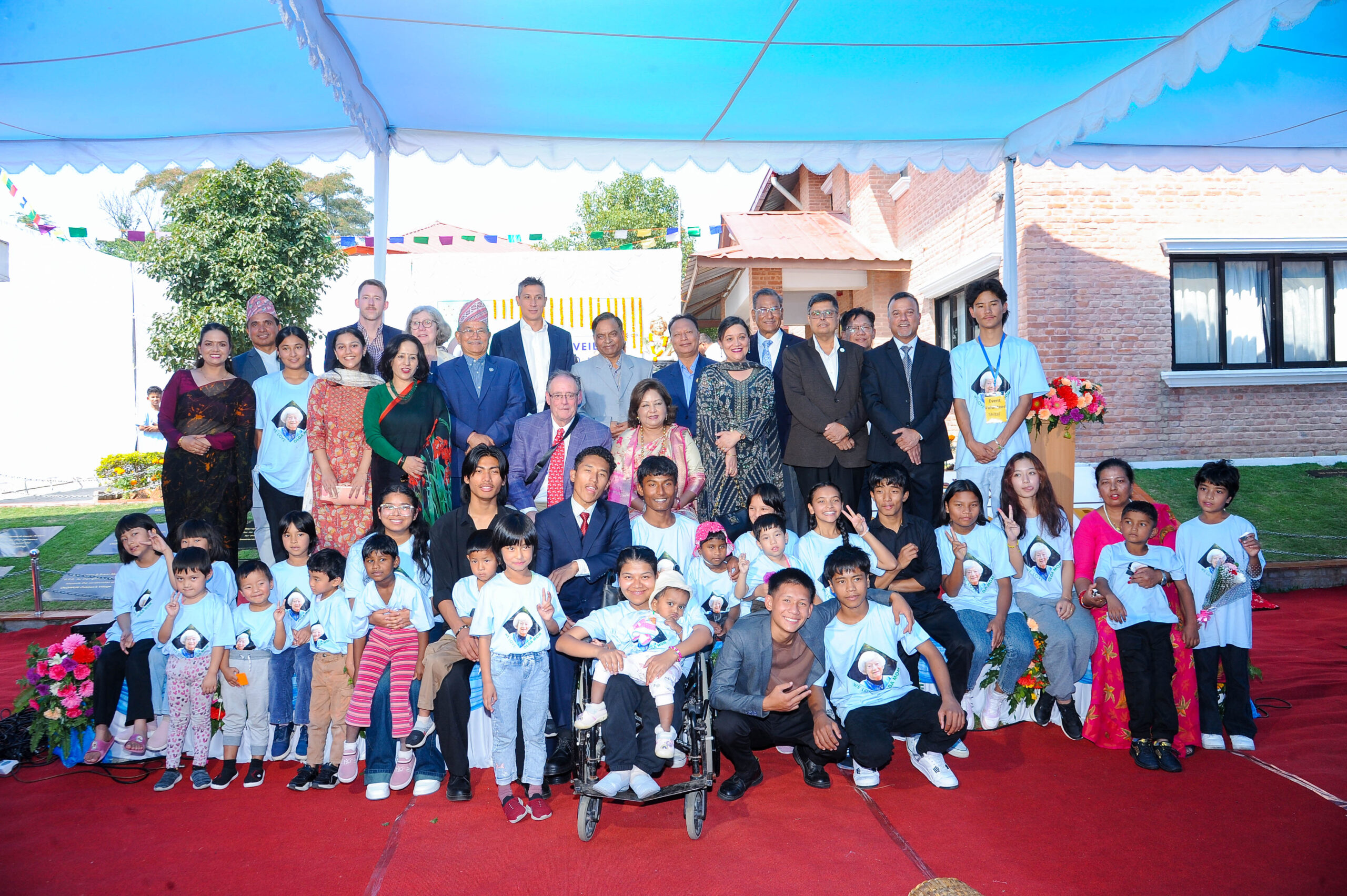
The Program
The program was emceed with heart by NYF Nepal staff member Laxmi Ghimire and K House alumna Bunu Sherpa. It featured a wide range of speakers, including our very own Board Chair, Chris Heffelfinger. Chris shared some sweet, funny stories about Olga’s life before NYF. The highlight of the program was a theatrical performance by the children telling the story of Olga’s founding of NYF.
At the end of the program, Olga’s grandson and newest NYF US Board Member, Sean Murray, helped to unveil his grandmother’s statue—a golden bust of Olga resting happily on a wooden lotus flower carving. As we unveiled this statue of Olga Murray on the grounds she cherished, we are reminded that her legacy of compassion and empowerment will forever be a part of this place and the hearts of all those whose lives she touched.
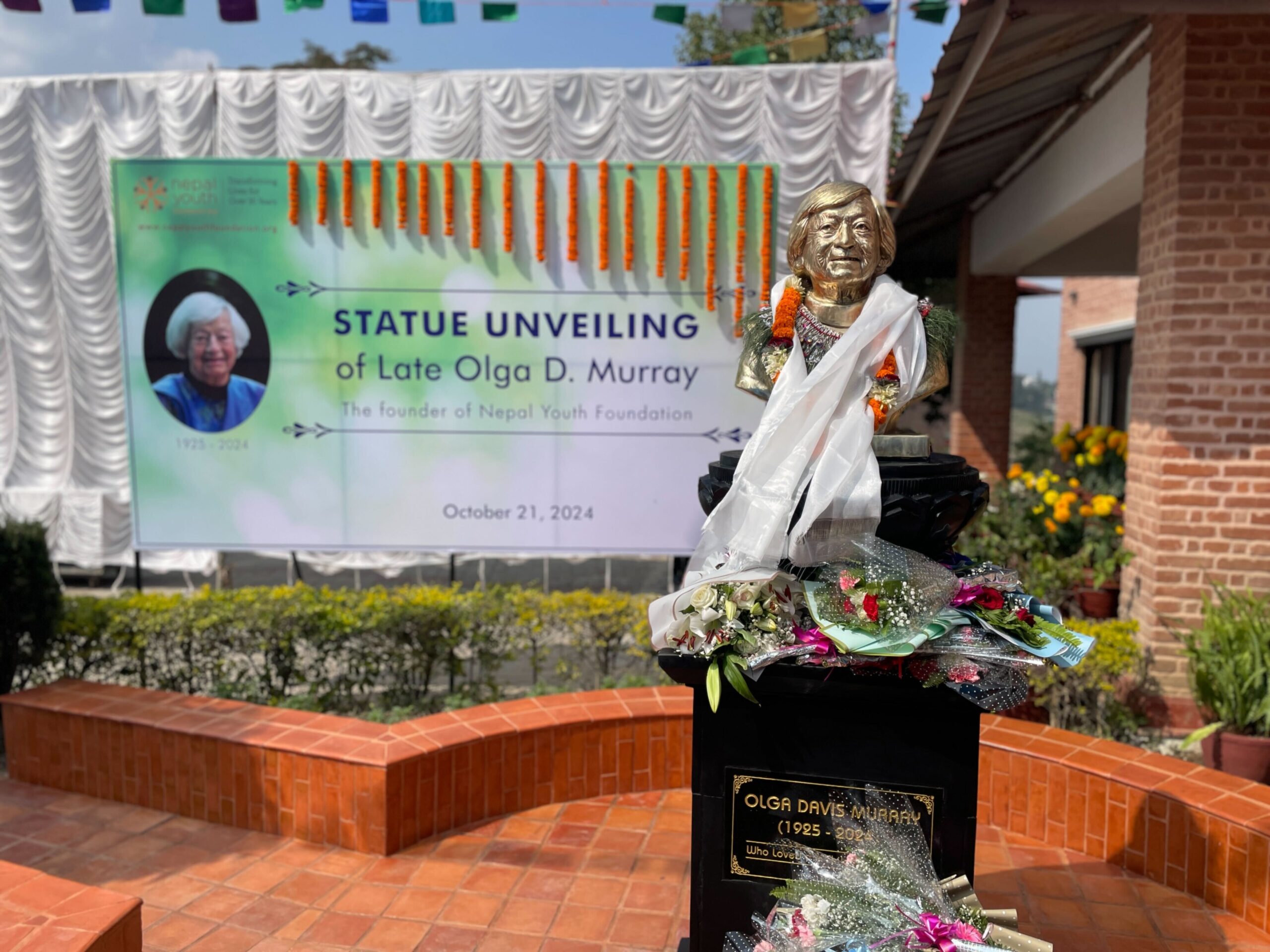
After the ceremony, guests enjoyed a delicious Nepali lunch. They then toured the Children’s Village, the Vocational School, Ankur Counseling Center, and the gardens.
Olga’s Legacy
Between 1990 and 2020, Olga spent about six months of every year living in Nepal full-time. She served as a doting grandmother figure to hundreds of children and forged lifelong friendships with community partners. She built transformative programs with her fierce determination and mentored a generation of Nepal’s child protection leaders.
In remembrance of her tremendous impact on the lives of tens of thousands of Nepali children, as well as her work to empower and strengthen the nonprofit community within Nepal, the NYF Community was honored to unveil this beautiful statue on the Olgapuri grounds.
As we rapidly approach the end of the year, we’re reflecting on Olga Murray’s dearest wish—that the organization she built would continue transforming the lives of Nepal’s children for generations to come. We hope you’ll join us in ensuring Olga’s vision lives on!
More Photos:
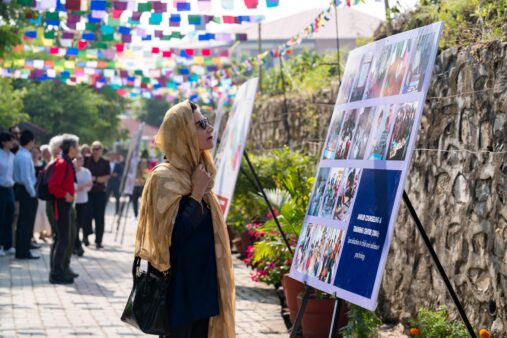
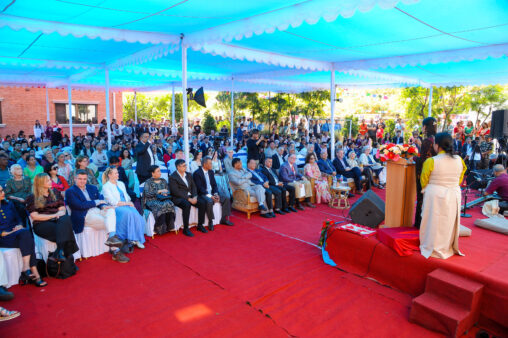
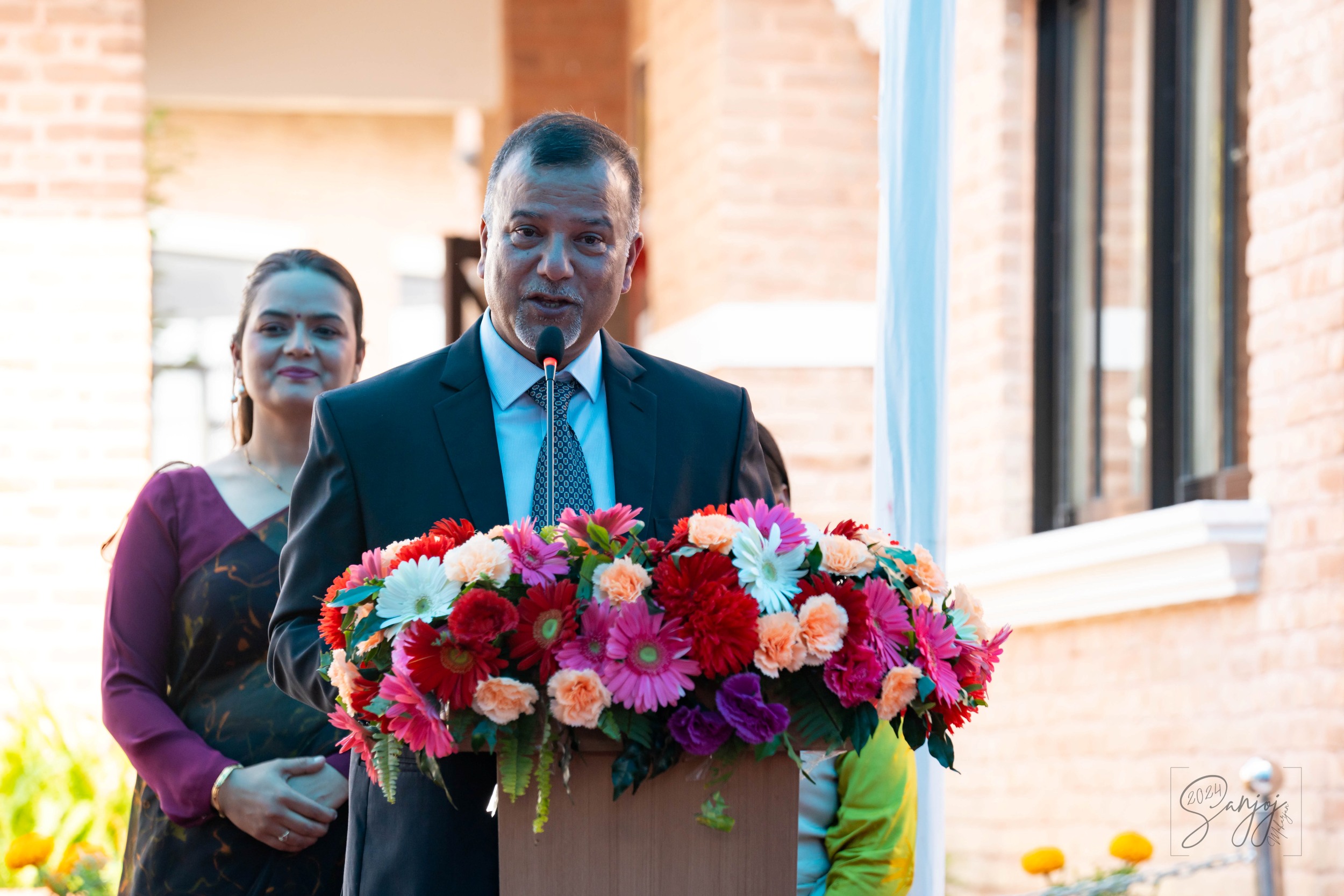
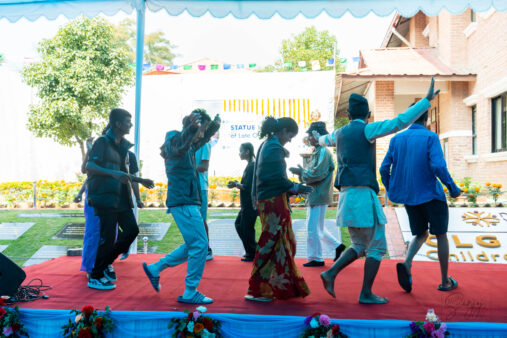
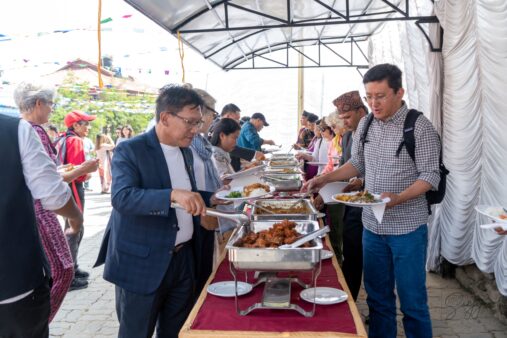
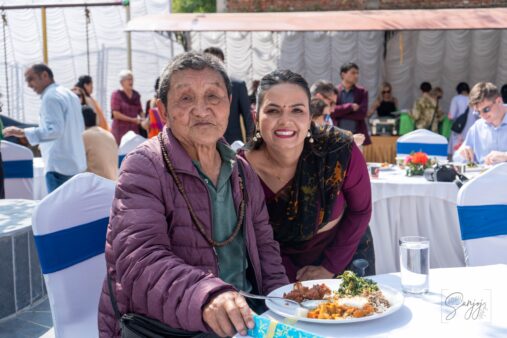
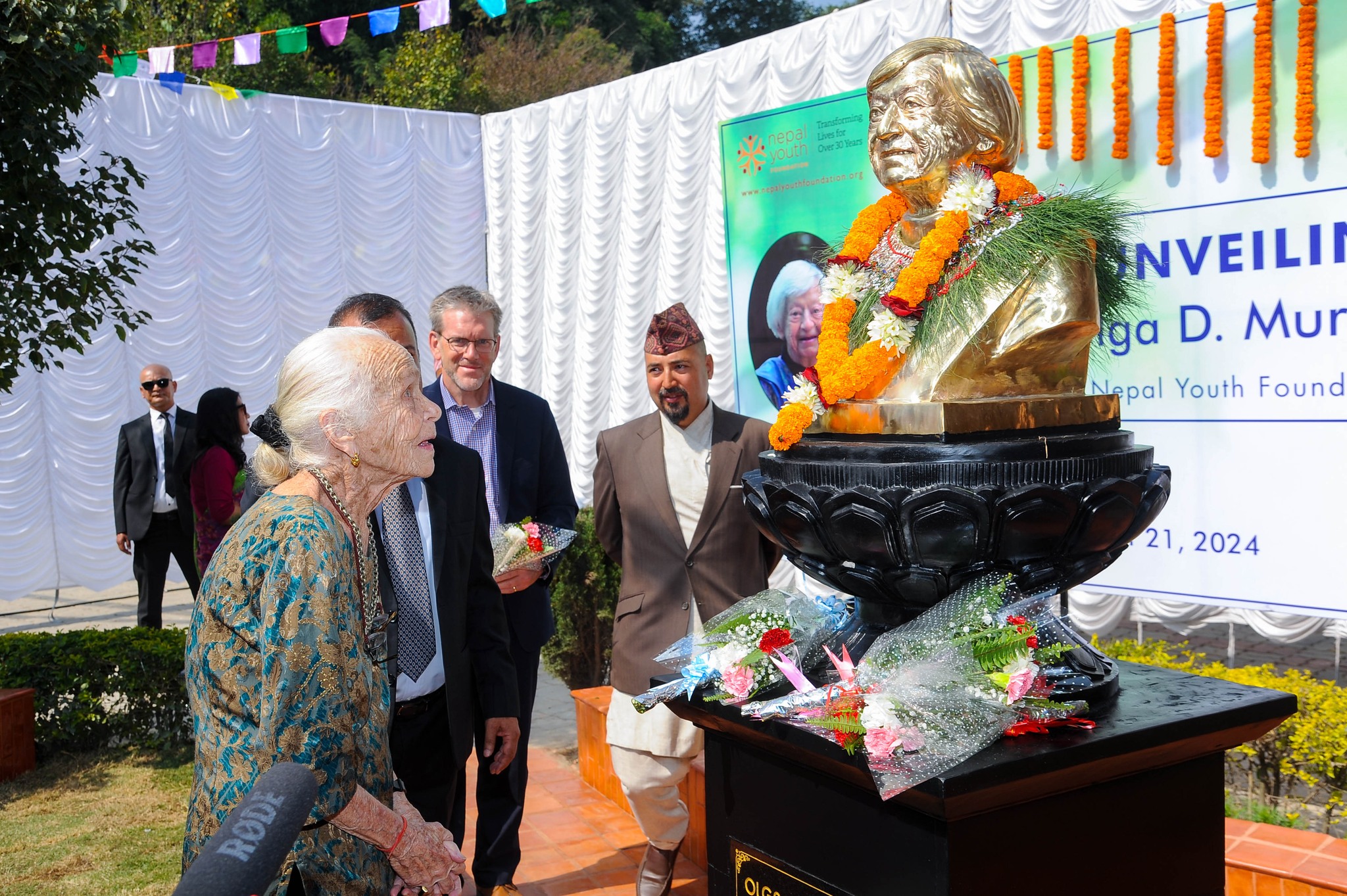
Click here to view this update on NYF’s Facebook page.
NYF Celebrates International Day of the Girl Child
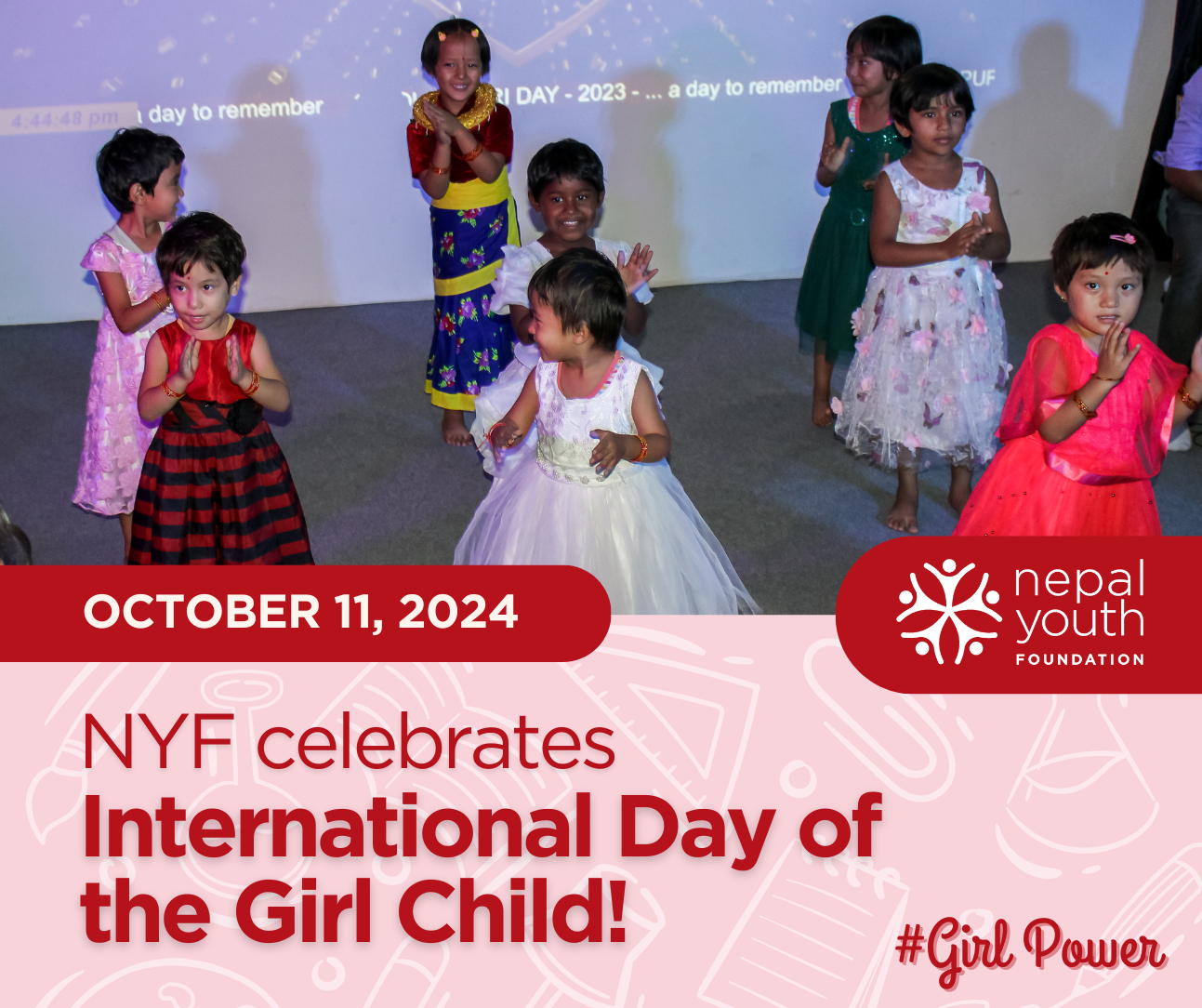
International Day of the Girl Child
In 2012, the United Nations declared October 11th as International Day of the Girl Child. This powerful global movement champions the rights and potential of girls everywhere. This day was born from the urgent call for gender equality and is driven by the unwavering voices of advocates worldwide. It highlights the unique challenges girls face—like limited access to education, early marriage, and systemic discrimination—while celebrating their resilience, strength, and accomplishments. Above all, it’s a call to action, reminding us that every girl deserves the opportunity to thrive, lead, and create a brighter future.
This year’s theme is “Girls’ Vision for the Future.” It underscores the boundless possibilities that arise when girls are empowered to dream big, assume leadership, and break barriers.
Nepal Youth Foundation paves the way for future girl leaders!
At the heart of Nepal Youth Foundation (NYF) lies a profound commitment to empowering girls and young women. For over three decades, we’ve been helping them reclaim their freedom, advocate for their rights, and shape their destinies. This is illustrated by one of our most transformative initiatives, the Empowering Freed Kamlaris program. This program has touched the lives of thousands of young women from the Tharu community, who once faced the oppressive chains of indentured servitude. Through education, self-advocacy, and community mobilization, these women have become powerful agents of change—leading a historic movement that brought an end to this exploitative practice in Nepal.
We continue to work side by side with these women to provide vocational training, higher education, and ongoing community support. Their courage and resilience remind us that when young women are empowered to stand up for their rights, entire societies are transformed. As we celebrate International Day of the Girl Child, we reflect on this legacy of courage and resilience.

Building Futures at Olgapuri Children’s Home
Olgapuri Children’s Home is NYF’s beautiful, permanent home for children whose parents are unable to care for them. Olgapuri is more than just a home—it’s a launchpad for dreams. Here, girls are equipped with the tools and confidence they need to envision their futures and make them a reality.
Earlier this year, our girls at Olgapuri showcased their talent and determination during an annual Carnival Days event. Competing alongside children from other group homes, they excelled in sports, chess, and essay writing. The highlight? Our girls’ futsal team clinched first place! Certainly, their victory is a testament to their hard work, spirit, and belief in themselves. On International Day of the Girl Child, we honor the girls at Olgapuri. They are dreaming big, leading with confidence, and building a brighter future for themselves and their communities.
Check out our champs (plus two proud little brothers) in the group photo!
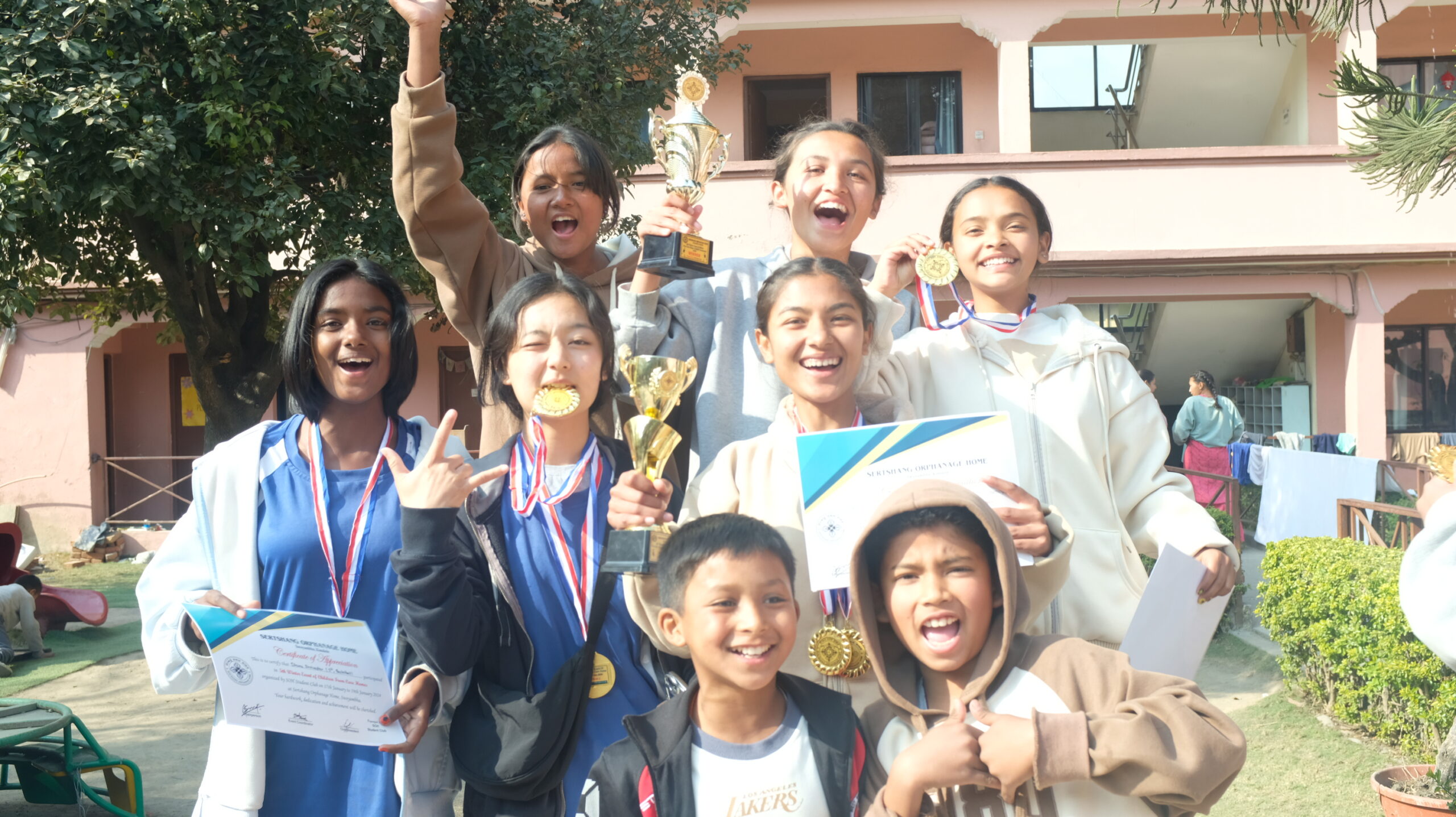
Healing & Hope at Ankur Counseling Center
Ankur is the Sanskrit word for “flower bud,” “sapling,” or “sprout.” It is also the name for Nepal’s first counseling center for children—NYF’s Ankur Counseling Center.
Transformation often begins from within. At Ankur, we witness the power of healing every day. One of our cherished counselors recently shared the journey of a young girl who arrived at the center struggling with loneliness and low self-esteem. Yet, even in her hardest moments, she carried the hope of becoming the best version of herself. Through weekly therapy sessions, she began to embrace self-compassion, gain confidence, and rebuild trust in herself and the world. As a result, the girl, once withdrawn, now excels academically. Even more, she formed beautiful friendships. Her story is a beautiful reminder that when given a safe space and strong support system, girls can reclaim their strength and shape their futures with courage.
“My favorite part of the job is witnessing the healing process of the children and youth,” the counselor reflected. “I love being the safe space where they can explore their fears and hopes, and I cherish being part of their journey toward confidence and compassion.” -Ankur Counseling Center Staff Member
Protecting Girls Through Kinship Care
Kinship Care is one of NYF’s two main “shelter” programs, the other being Olgapuri Children’s Village. NYF’s Kinship Care program keeps families together by providing small stipends to loving, stable family members to ensure children are safe, well-fed, receiving necessary medical care, and most of all, attending school!
Unfortunately, in some communities around Nepal, early marriage still threatens girls’ futures. For instance, in early 2023, NYF’s Kinship Care Program Officer & Technical School Scholarship Officer, Ram Babu Rai, encountered this issue firsthand in a village near his hometown. Ram Babu found that in the Balami community, harmful traditions jeopardized young girls’ education and freedom. As a result, Ram Babu proposed a special scholarship program to protect these girls from early marriage. The initiative currently supports 15 girls at risk, ensuring they stay in school and receive the education they deserve. By collaborating closely with local schools and governments, we hope to expand this program and further protect young lives and reduce school dropouts.
To dive deeper into Ram Babu Rai’s impactful work in child protection and education, check out his staff spotlight.
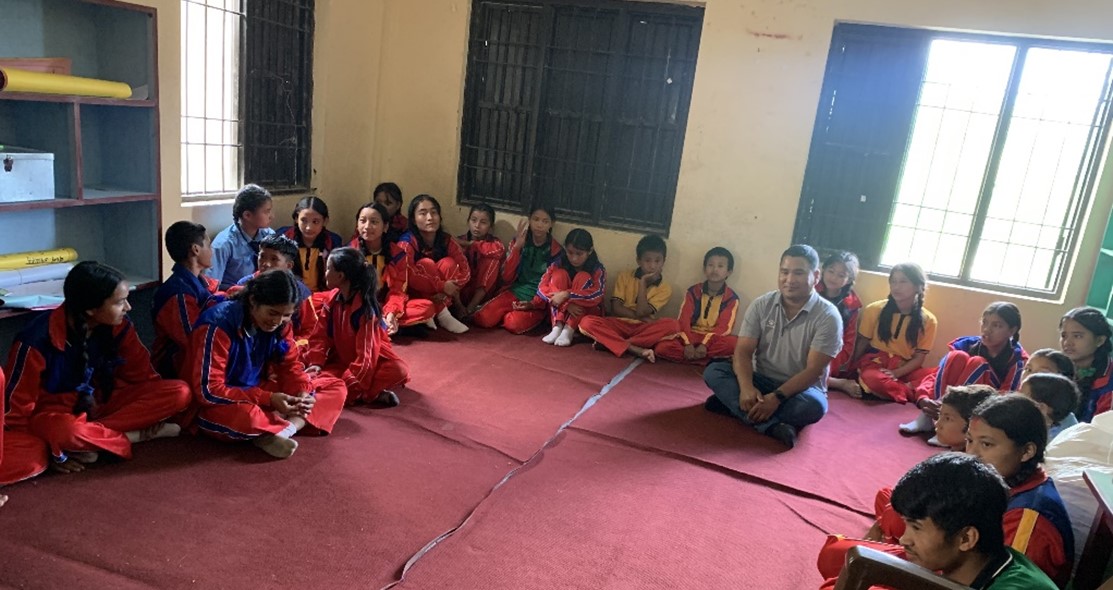
Advocating for Change Through the Caste Equality Project
NYF’s long-term Caste Equality Project is our most ambitious and daring undertaking yet. Our goal is to empower Nepali Dalit communities to access the opportunities and resources they need to build towards the futures they envision for themselves and their children.
Similarly to NYF’s Empowering Freed Kamlaris program, we expect this work to take a generation or more. Our full Caste Equality Project will combine lessons learned across our organizations 30+ year history, providing on-the-ground interventions in Dalit communities. Overall, the challenges confronted by Nepal’s Dalit communities are complex and tightly woven with every aspect of life, from pre-natal care to early nutrition to educational opportunities and much more.
Street Drama Campaigns
To demonstrate, in February 2024, ten girls from Saptari District took center stage, performing a street drama that exposed the harmful effects of child marriage. Drawing from real-life experience like dowry negotiations and forced unions, they sparked vital conversations about gender inequality and child protection.
Among these young activists is Priya*, a 16-year-old who was married at just 14. Priya understands firsthand the devastating effects of early marriage and is determined to protect others from the same fate. “I’m experiencing the repercussions of early marriage myself, so I’m delighted to contribute to its prevention in any way possible,” she shares. Since beginning her advocacy work, Priya has already helped to stop at least one child marriage. Undoubtedly, demonstrating the transformative power of young voices leads to change. As we celebrate International Day of the Girl Child, initiatives like these remind us of the strength, courage, and leadership of girls—working tirelessly to build a more just and equal future for themselves and their communities.
Interested in learning more? More updates are coming out of Saptari District here!
*Name changed to protect the privacy of the individuals we work with.
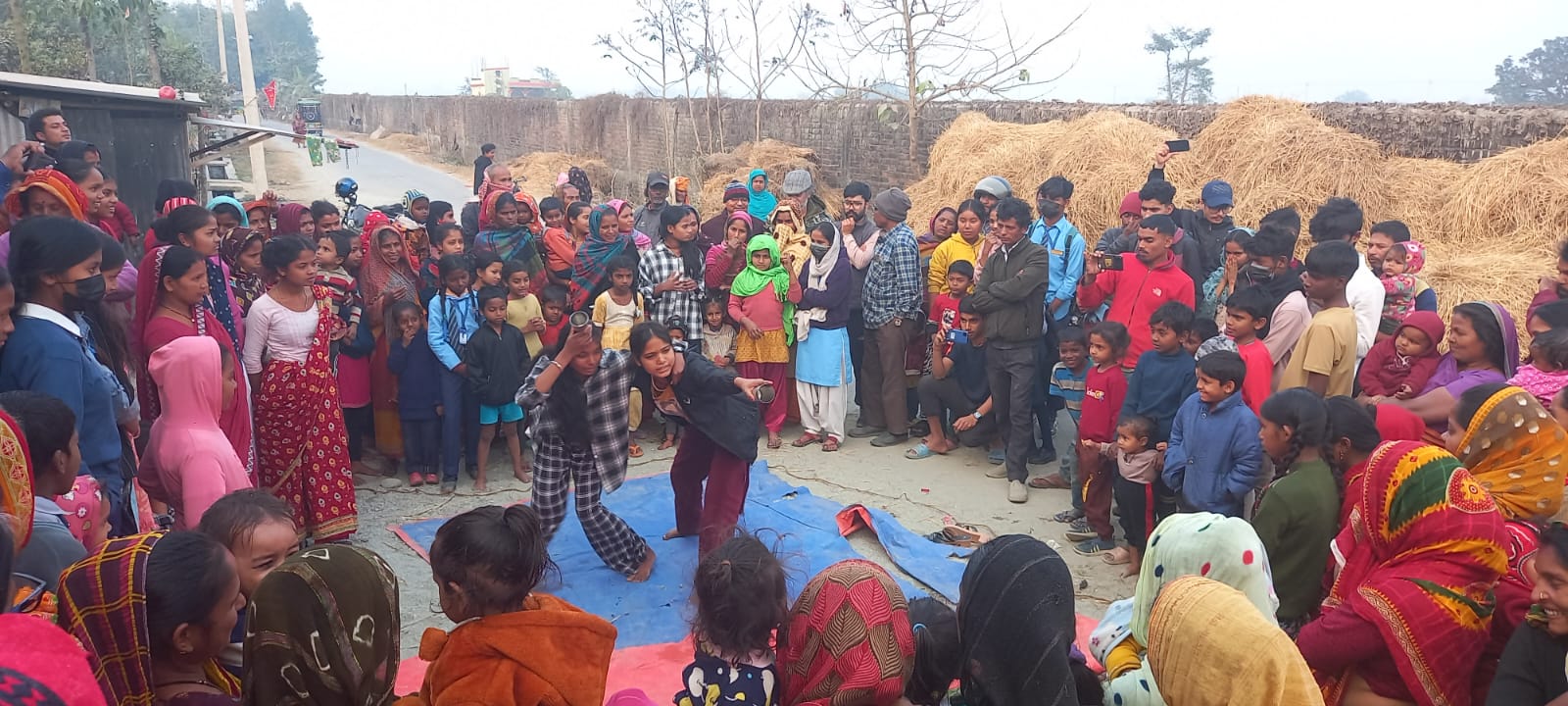
Embracing Limitless Possibilities for Every Girl
At NYF, we believe every girl should feel confident that there are no limits to what she can achieve. Ultimately, whether she dreams of becoming a scientist, an artist, or an entrepreneur, we are committed to breaking down barriers and challenging stereotypes that stand in her way. Above all, this International Day of the Girl Child, we celebrate the limitless potential of every girl. We honor her vision for the future and reaffirm our commitment to supporting her journey.
Together, we can build a world where every girl is not only heard and valued but also empowered to turn her dreams into reality.
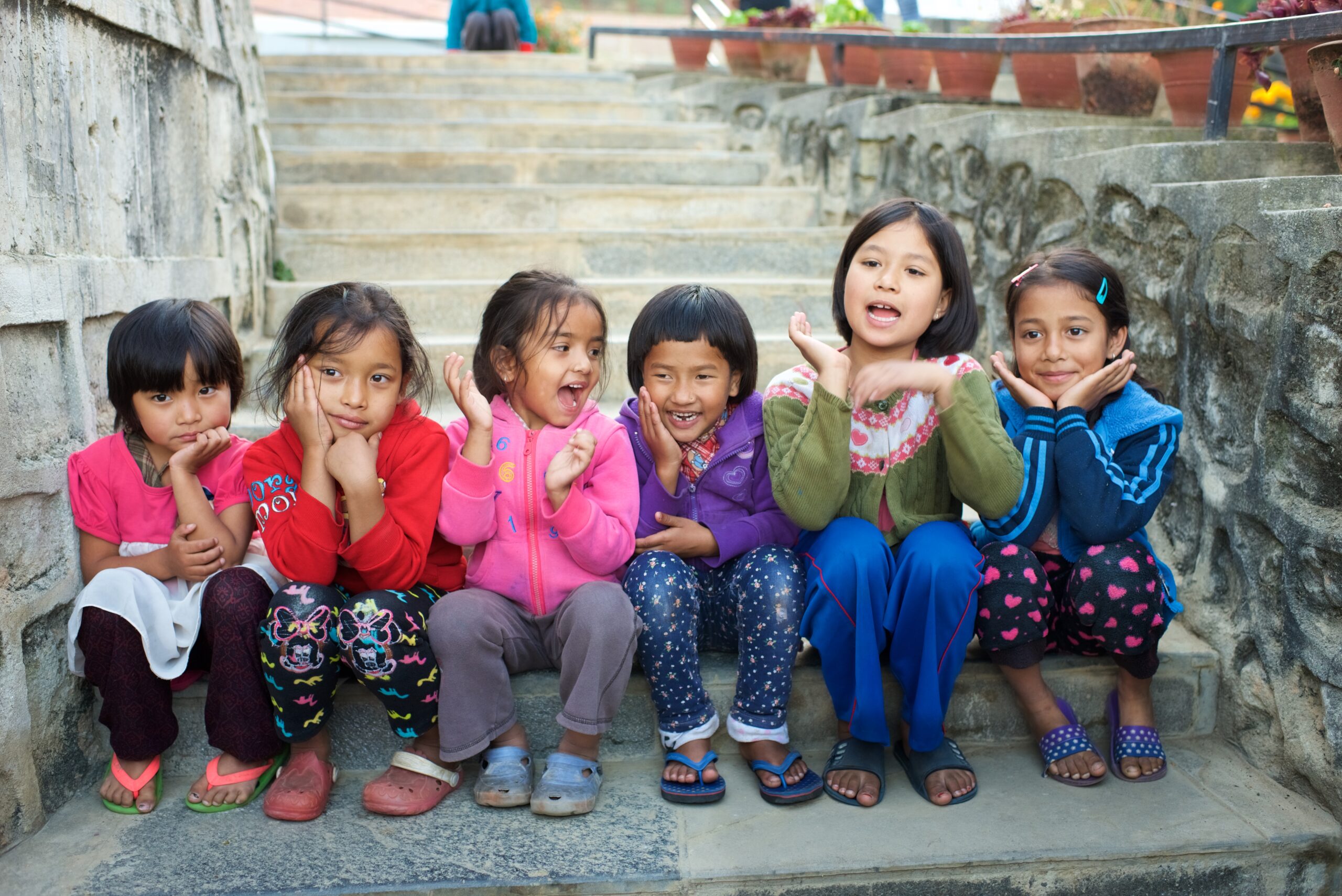
Two Community Learning Centers inaugurated!
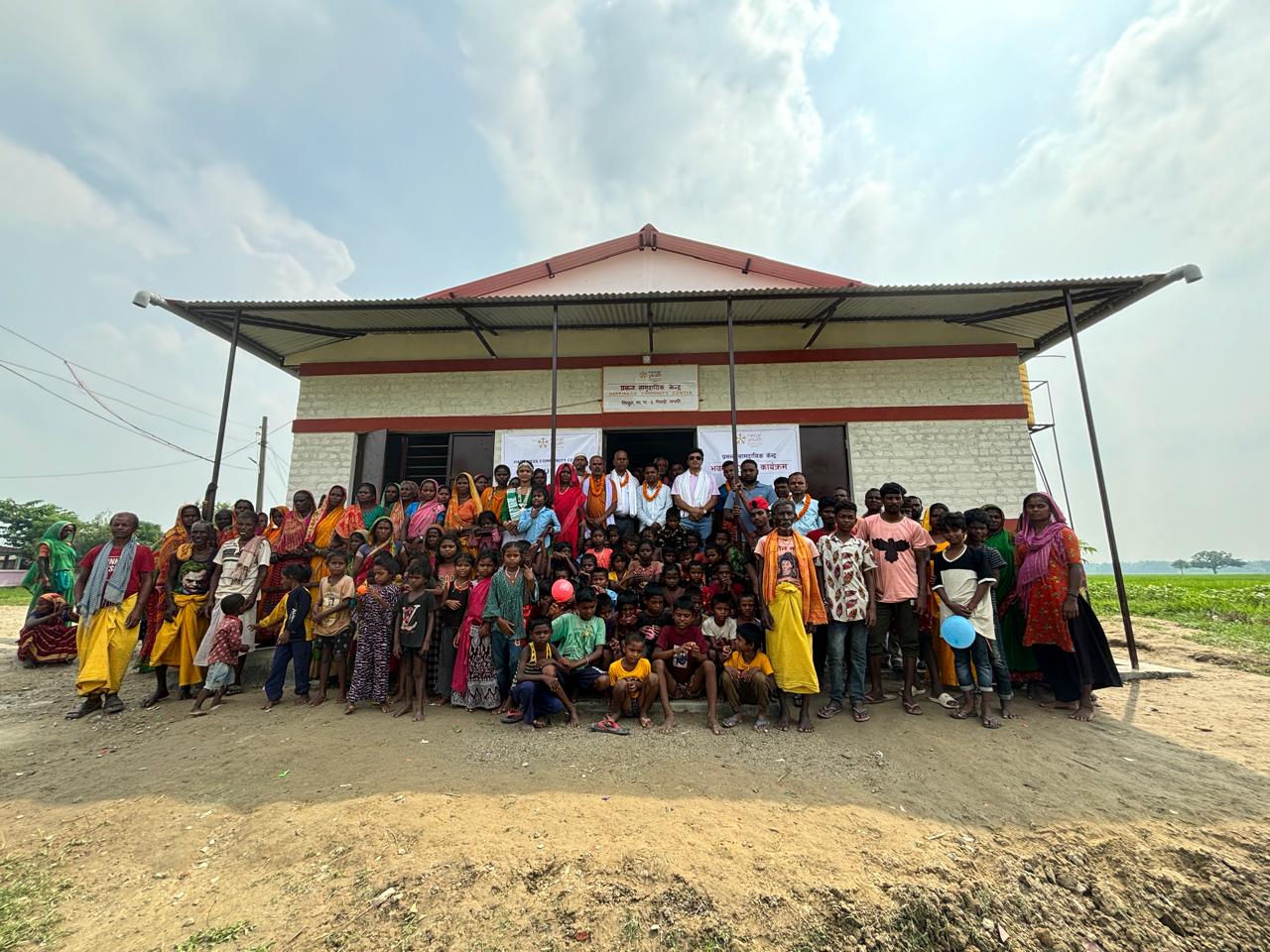
On September 25, 2024, NYF officially inaugurated two new Community Learning Centers (CLC) in Saptari District as part of our Caste Equality Project. These centers will serve as vital hubs for children and adults in their respective villages with a wide range of programming available. Programs include afterschool tutoring, childcare, early childhood education, adult literacy & skills training, and more.
We’ve already started operating out of these two centers, and we have plans to build three additional spaces in villages throughout Saptari District.
The inside of the centers include teaching and meeting spaces, furnished kitchens, up-to-date restrooms, and offices. Each center will be located a safe walking distance from children’s homes. This allows even very small kids to arrive safely without danger from wildlife, monsoon rains, or summer heat. Best of all, staff members will be hired and trained from within each local village, building upon existing expertise and strengthening community bonds.
Taking the name “Happiness Community Center”, the two newly-inaugurated spaces celebrate the positive impact it will make in the village. We’re so grateful to those in the NYF Community for helping to make this possible!
(We hope you enjoy this short video that recaps this very special inauguration day.)
Programs have started in the Community Learning Centers!
Our Peer Counseling Program, which launched in the spring of 2024, is now fully operating out of the Community Learning Centers. In April, 30 young women (aged 13-19) from Tirhut Municipality traveled to Kathmandu to receive peer counseling training at Ankur Counseling Center. Now, these trained women are leading monthly support groups with 70 attendees (so far!)!
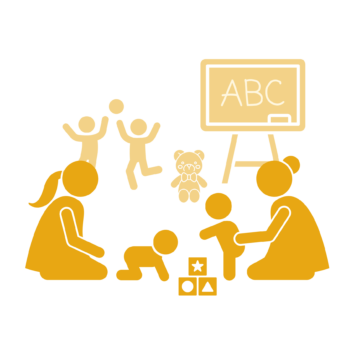
Reliable Childcare & Early Childhood Education
These two Community Learning Centers offer play-based & educational Early Childhood Care all day to toddlers under the age of 3.5. This empowers parents, particularly moms, to access stable job opportunities, allowing them to nourish their children, to save and invest in the future, and to participate more actively in their communities. While parents work, preschoolers spend their days in a safe, social, learning-rich environment provided by local experts trained by NYF. This also benefits older sisters who often miss class to provide childcare, allowing girls to stay in school, too.
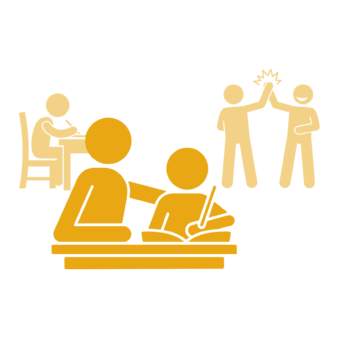
After-School Tutoring & Bridging Courses
Older students who visit the centers can receive after-school homework help and tutoring. Those who wish to re-enter school after a long gap can receive special “bridging courses.” This would help them catch up to their peers and thrive in school. Bridging courses provide a rapid foundation in mathematics, Nepali, English, science, social studies, and health sciences, all based on the government curriculum for each grade.

Nutritious Meals
Children receive hot, nutritious meals prepared on-site using proven Nutritional Rehabilitation Home principles. This ensures local kids receive at least one nutrient-rich meal per day.
Other CEP programs planned for these spaces include:
- Adult Literacy Classes (covering reading, home finance, and legal literacy).
- Town meetings where teachers, parents, and local leaders build community-wide, unified strategies.
- Nutrition-focused home cooking classes for mothers, applying NRH principles.
- Disaster preparedness programs.
- Peer counseling and support groups (these are already underway).
- Women’s empowerment and co-op groups.
- Teacher training.
Letter from Som Paneru: Empowering the next generation
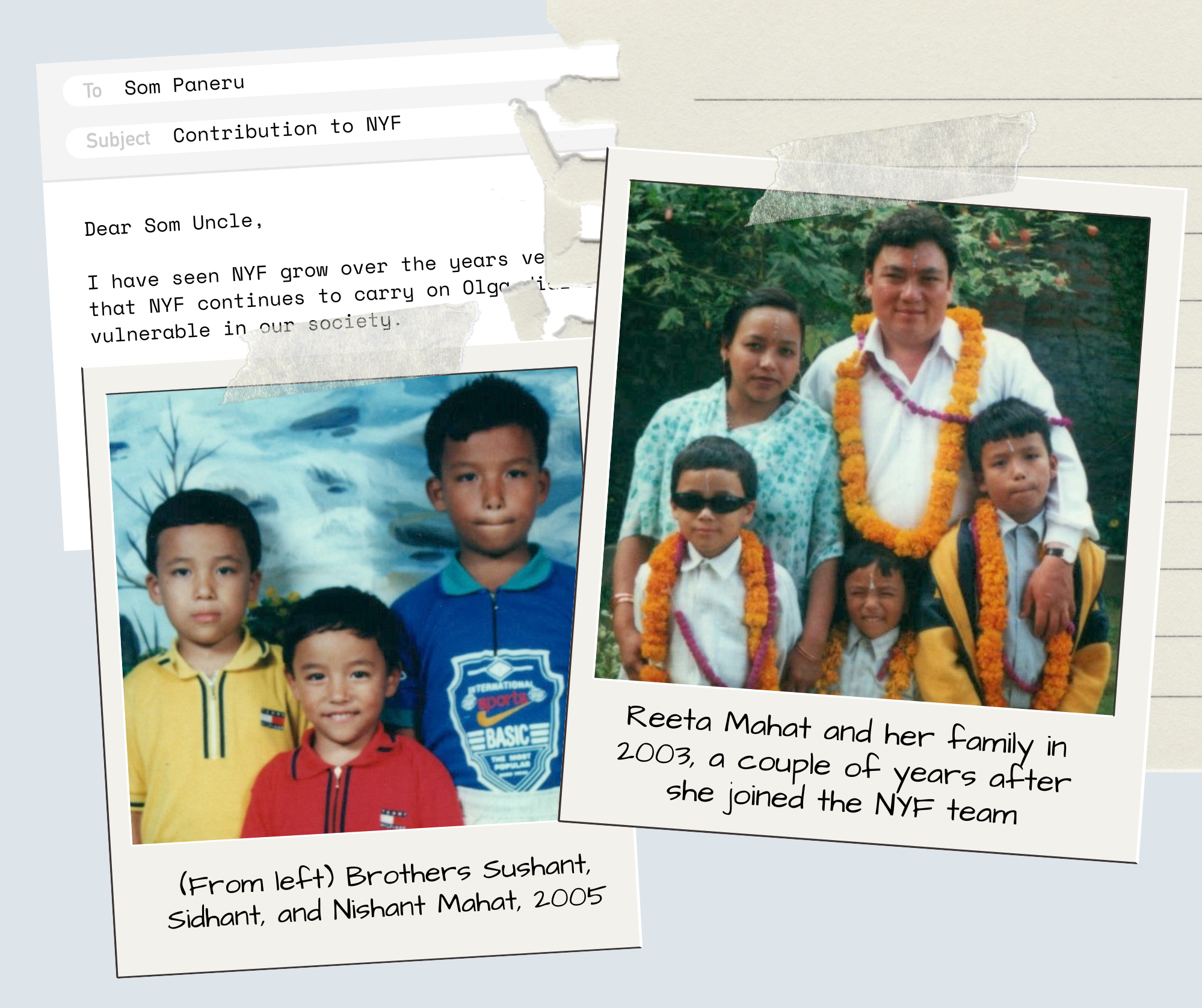
The following is a version of a letter from NYF President Som Paneru. The letter was featured in a mailing in September 2024, sent to select NYF friends in North America. If you’d like to receive stories like this in the mail, please let us know. We hope you enjoy reading about the NYF Community’s heartfelt efforts to empower the next generation of children in Nepal!

Dear NYF Community,
This year, as we all commit to keeping Olga’s promise—now our shared promise—I often find myself reflecting on Olga didi’s inspirational impact on generations of Nepal’s young people. I am so grateful to you for making this remarkable work possible.
Nepali culture is deeply rooted in relationships, and in exchanges between each generation. Our language is full of special family-oriented terms of respect. Additionally, multigenerational homes are very common here. And our most cherished festivals highlight blessings offered to children from their elders.
In the early years, as our beneficiaries began to reach adulthood, Olga was tremendously proud that many of the children we supported began joining our efforts to empower the next generation of children. Their support, combined with the enthusiasm of our loving community in the U.S. and beyond, allowed our work to expand far beyond our expectations.
This trend has continued throughout NYF’s 34-year history. More and more, graduates are using their success to “pay it forward” for the next generation of NYF students. Even the children of long-time NYF staff members have joined our work!
Recently, I received a heartfelt email (below) from Nishant Mahat, the son of long-time NYF team member Reeta Mahat. When Reeta joined the NYF team in 2001, Nishant was only nine years old. Reeta had never anticipated needing to financially support her family. But she found a job at NYF at exactly the right time—and she has been a crucial team member ever since.
Nishant’s Heartfelt Email
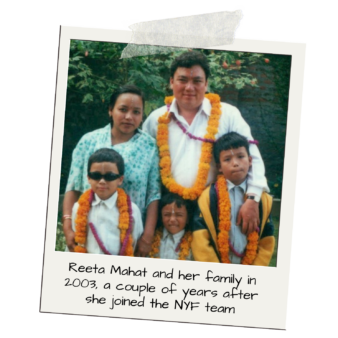
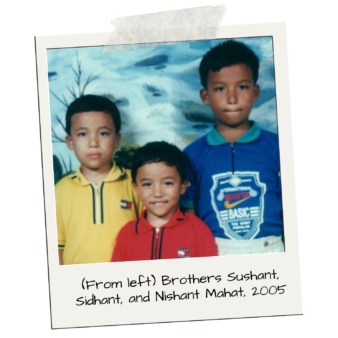
To: Som Paneru
From: Nishant Mahat
Subject: Contribution to NYF
Dear Som Uncle,
I have seen NYF grow over the years very closely and it gives me immense pleasure that NYF continues to carry on Olga didi’s dream of making lives better for the most vulnerable in our society.
Among many things, what distinguishes NYF from other NGOs is the integrity it shows in delivering aid to the ones who really need it. As you know, my mother is one of the earliest staffs in NYF and I have witnessed first-hand the passion, devotion and sincerity that she puts into her work. That kind of devotion would not be possible if her work was not making an impact on lives of others. Her dedication strengthens my trust in NYF.
While NYF’s work of helping Nepali children and youth deservedly gets credit, I think what is often overlooked is the impact it has on its staffs’ life and family.
Without my mother’s job at NYF our lives would have turned out very differently and not in a good way. Sushant, Sidhant and I always considered ourselves beneficiaries of NYF. So, it is time I think I give something back.
The idea of giving back has always driven us. Sushant has donated to NYF before and his company matches his donation. Sidhant, when he was here, also made contributions. Therefore, it would be an honor for me to contribute to NYF as well.
Sincerely,
Nishant Mahat
The Mahat Brothers: Supporting NYF
Today, Nishant is a successful software engineer in Kathmandu. His younger brother Sushant works in the U.S. at a leading-edge tech company.
Their youngest brother, Sidhant, unfortunately passed away while hiking in Colorado in 2022. He was pursuing his master’s degree in computer science and already supported NYF whenever he could. His family finds comfort in knowing that Sidhant’s spirit of generosity lives on in the kids he helped to empower.
I was very moved by Nishant’s email. His thoughtful compassion clearly shows that he is following in his mother’s (and brothers’) footsteps. And his desire to give back to NYF to support the next generation of Nepal’s children means much more than financial numbers.
Caste Equality Project Updates & Next Steps
Now, I want to take this moment to share this one-pager which provides an overview of our Caste Equality Project work from the past year. It also includes exciting next steps. Photos from Saptari District remind me of the early days of the Indentured Daughters program. In 2000 and 2001, we had no idea how much we would accomplish by empowering young Tharu women to reject oppressive systems and demand change. Thanks to support from people like you, in just 20 years, childhood indentured servitude changed from a day-to-day reality in their communities to an illegal, widely-rejected relic of the past.
Now, with support from you and young, inspired Nepali people like Nishant, Sushant, and Sidhant, we are building that same momentum in Dalit-majority villages in Saptari District.
We hope you’ll help us keep our transformative shared promise by making a generous gift today.
Onward!
Som Paneru
NYF President